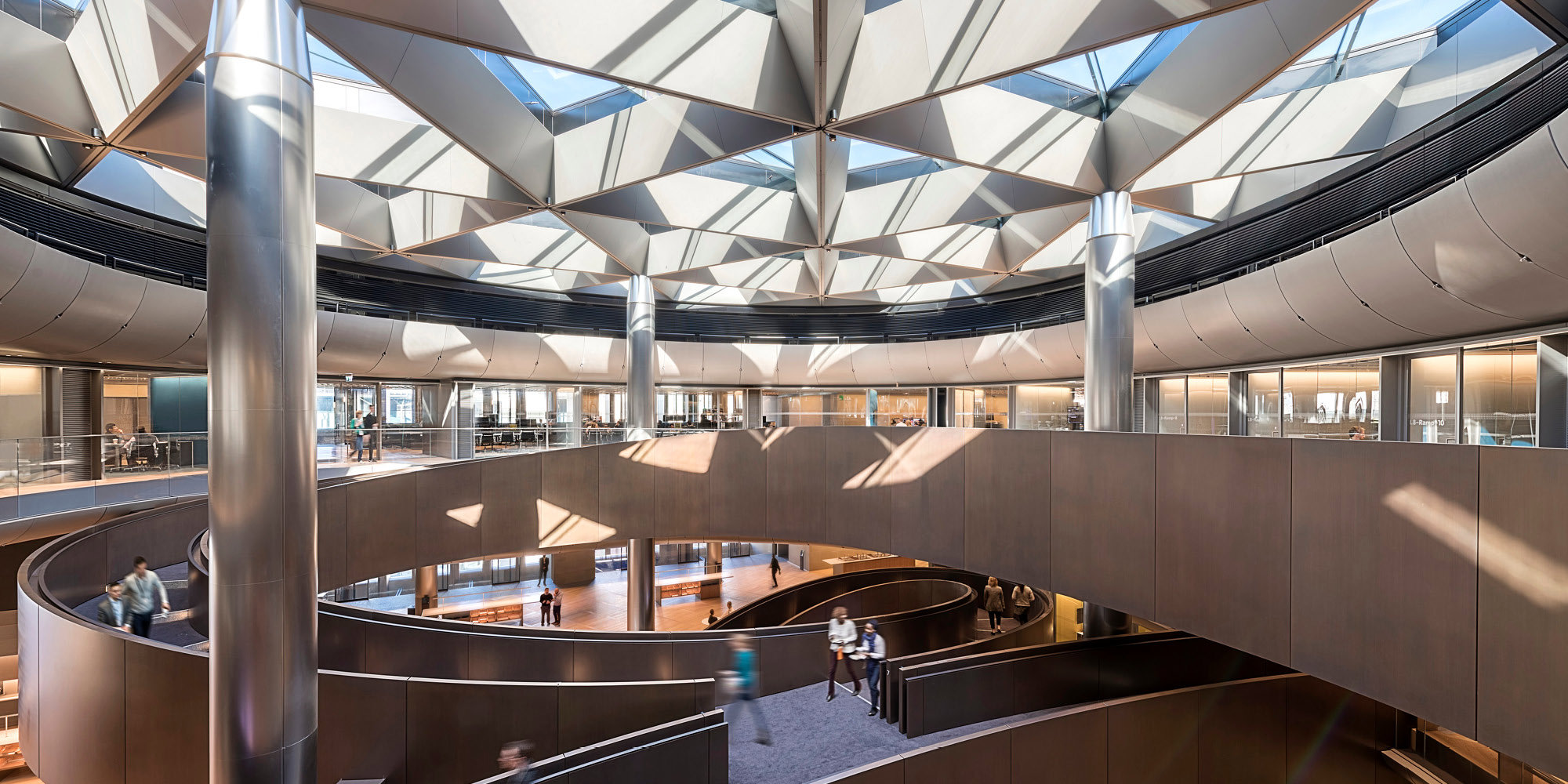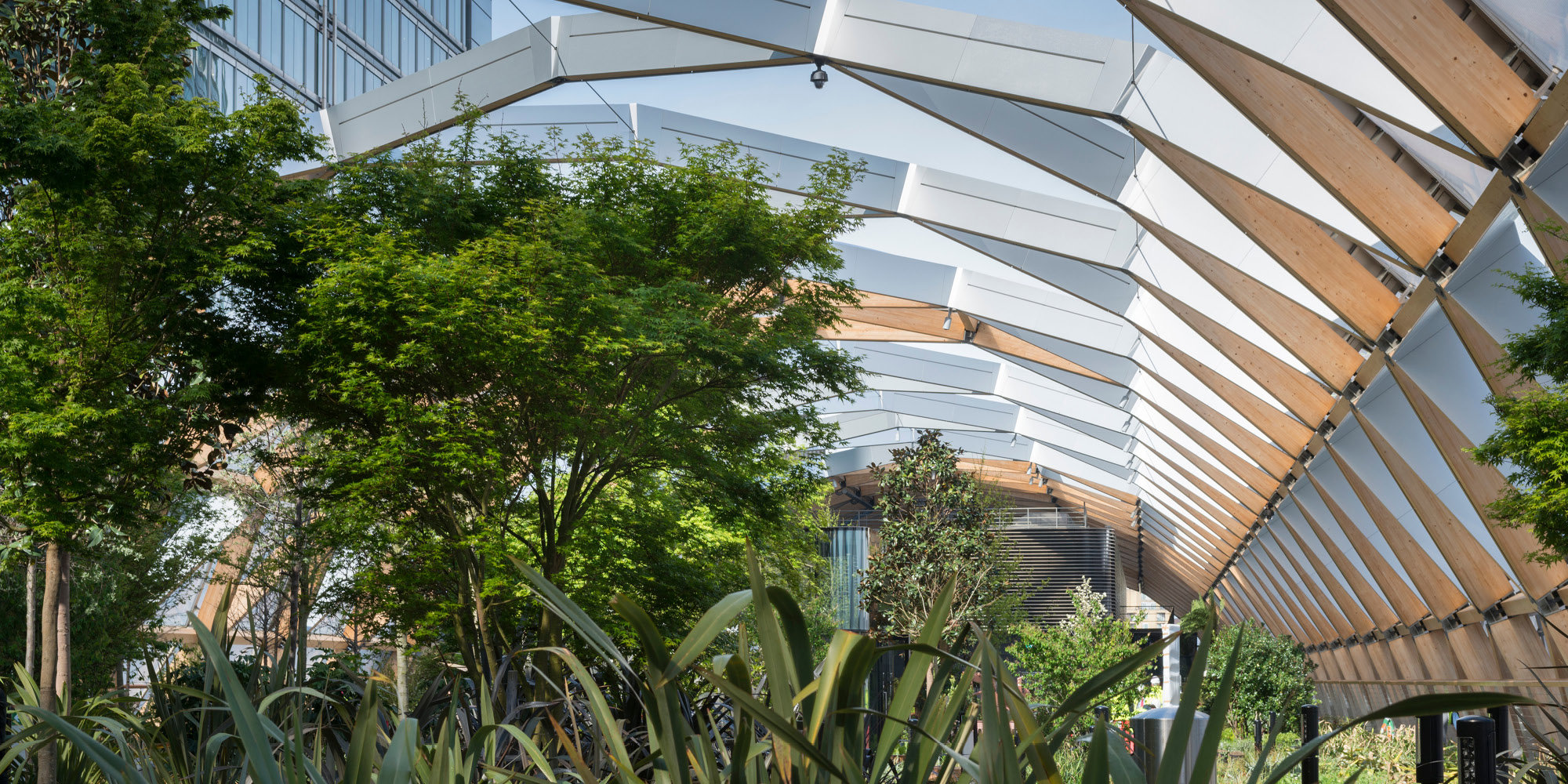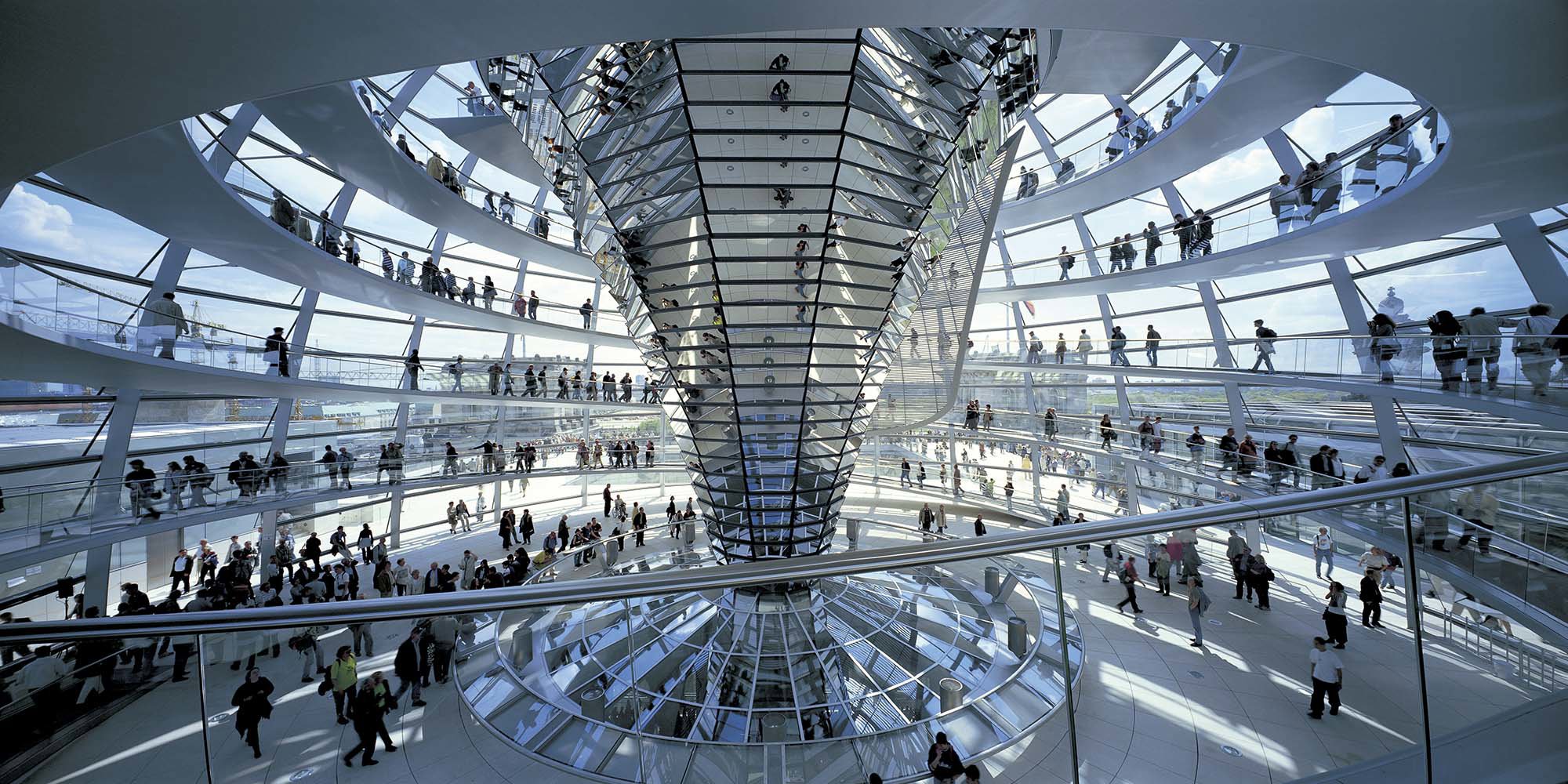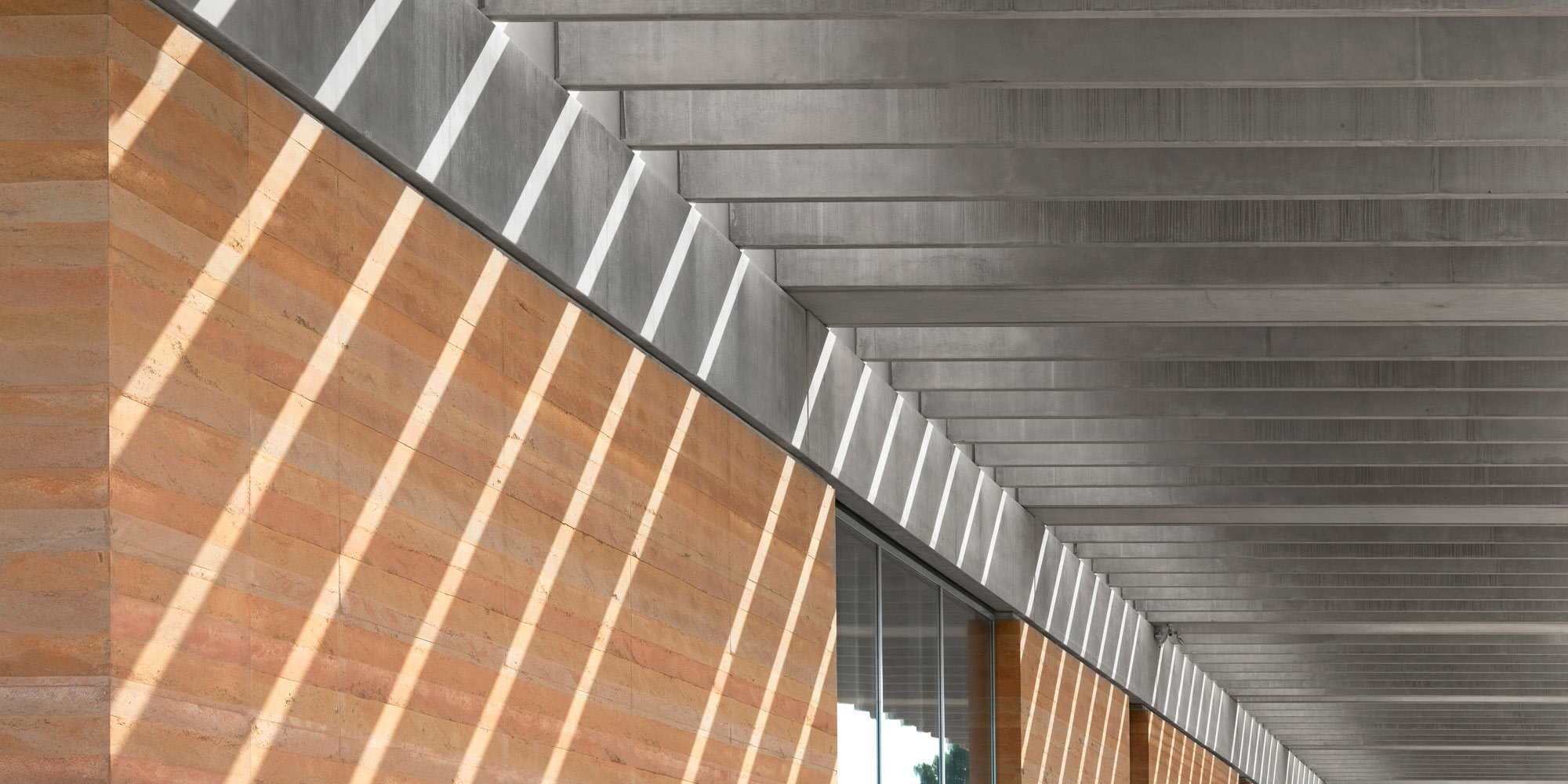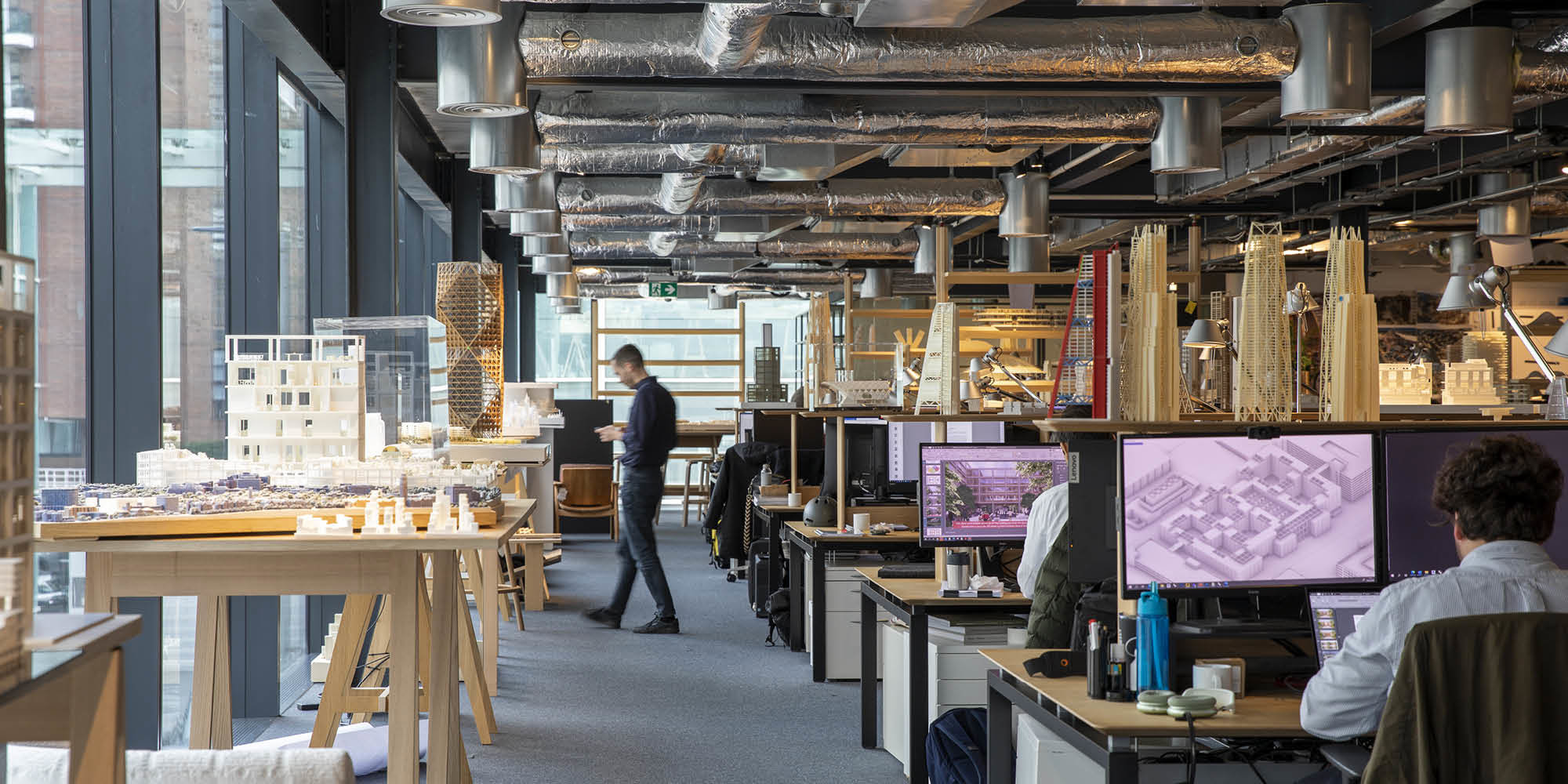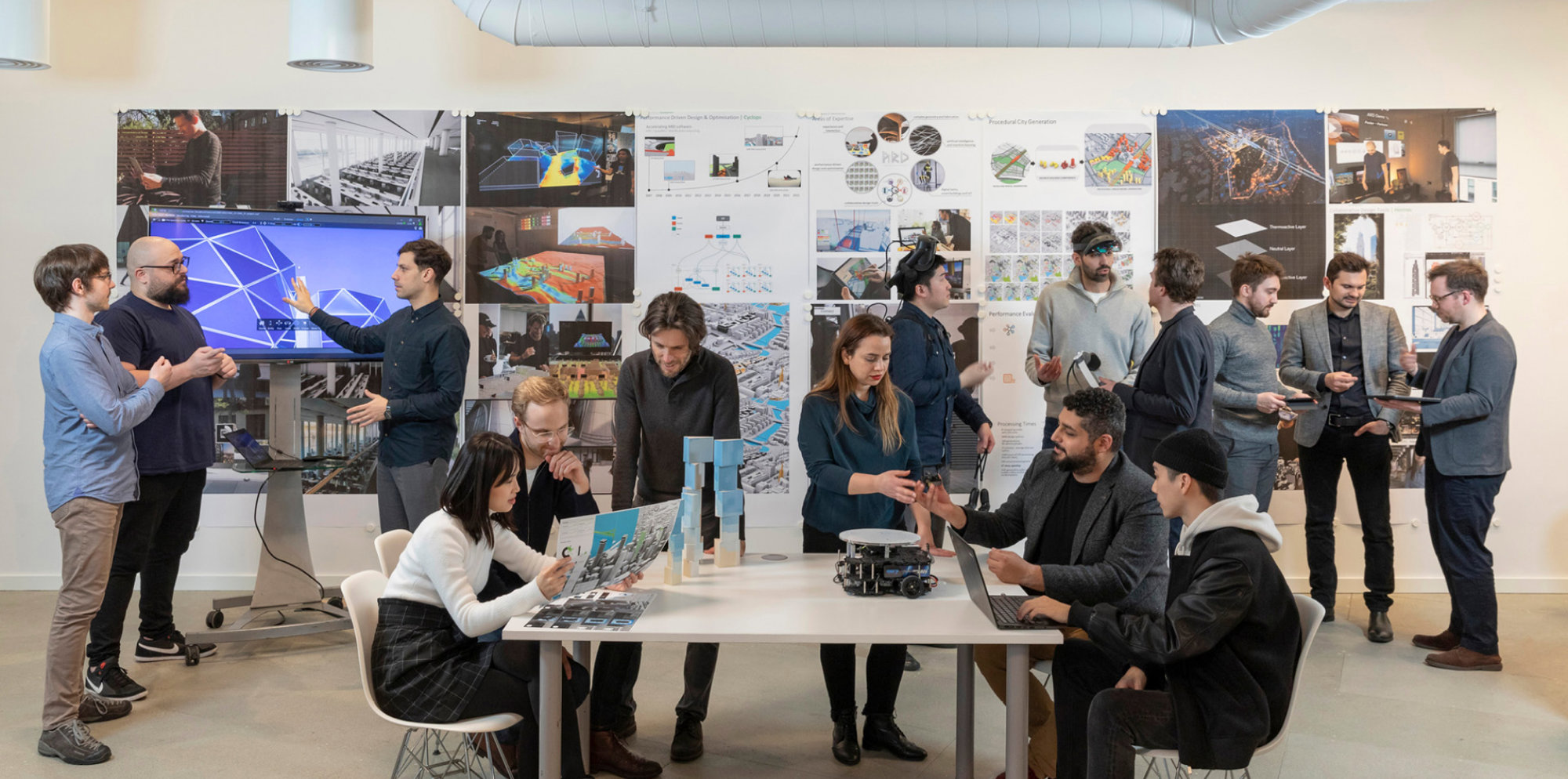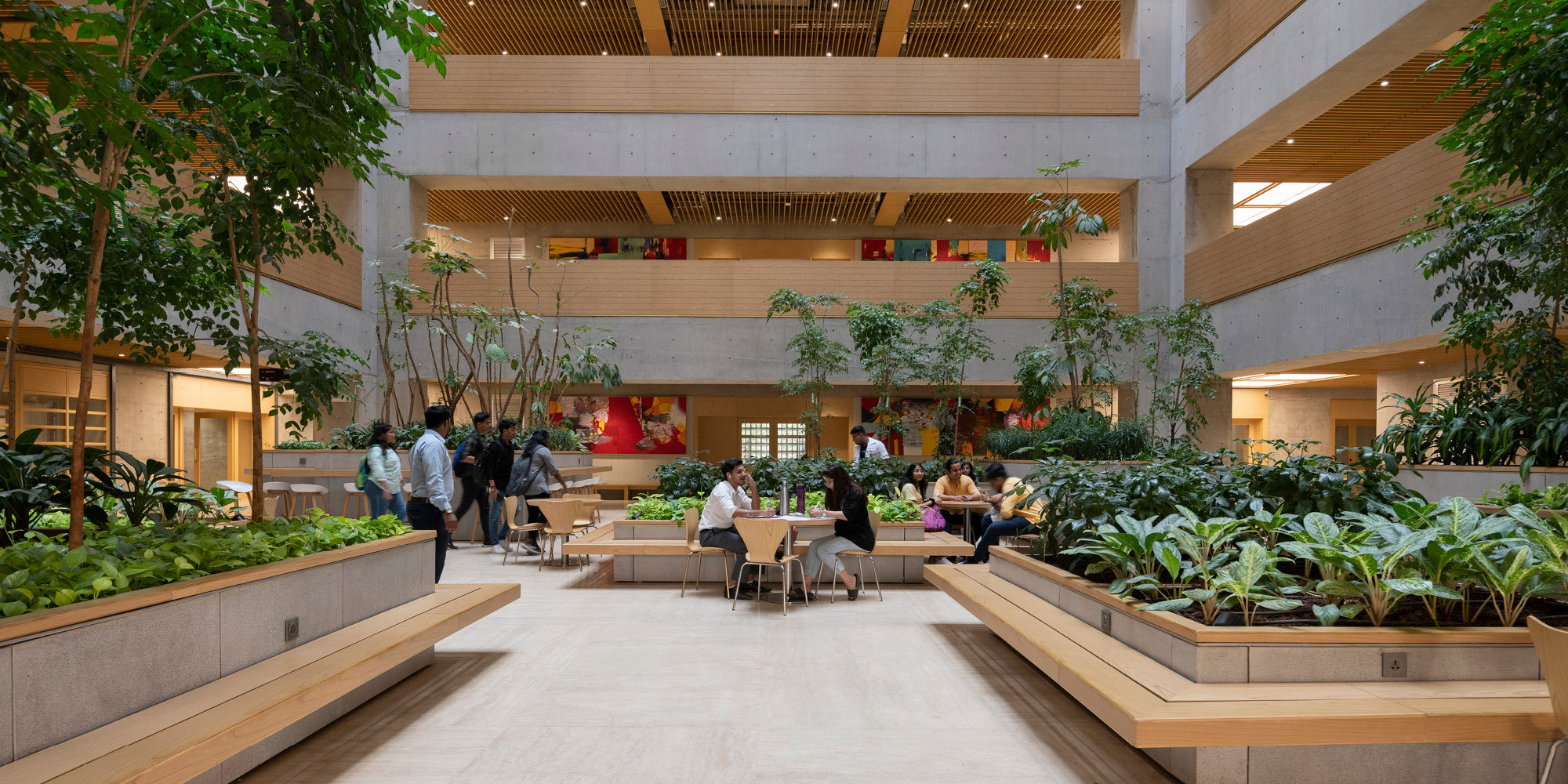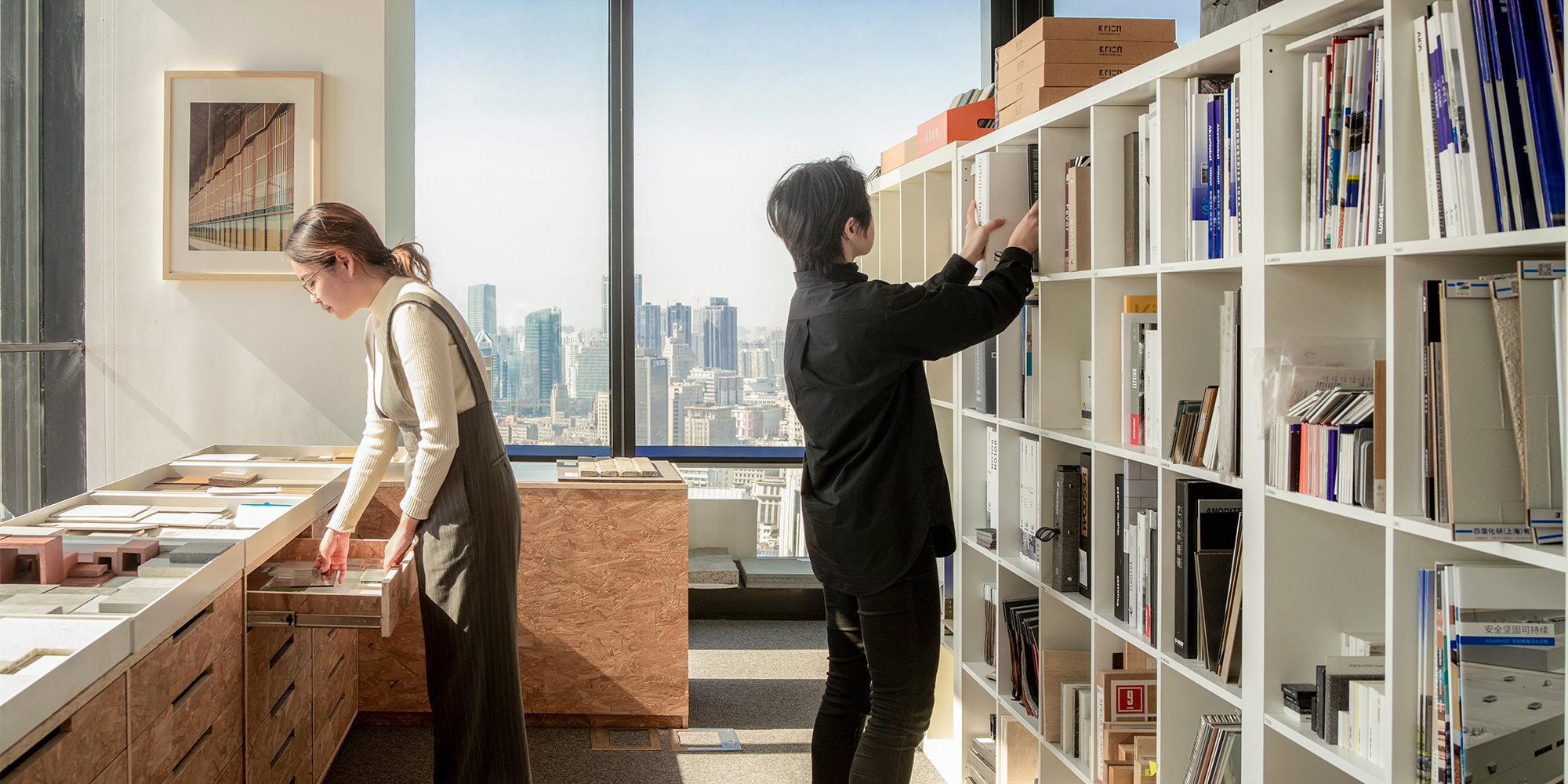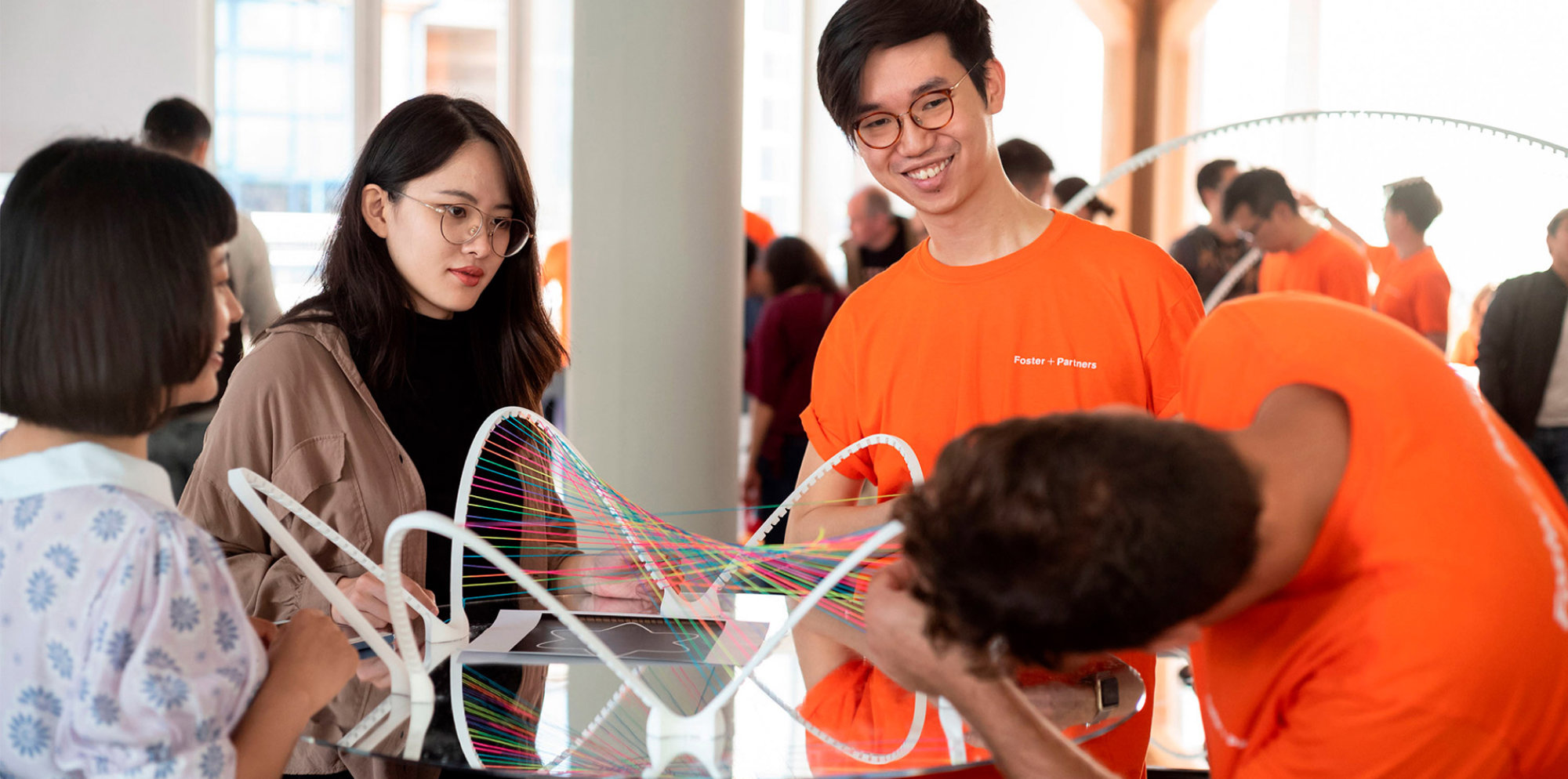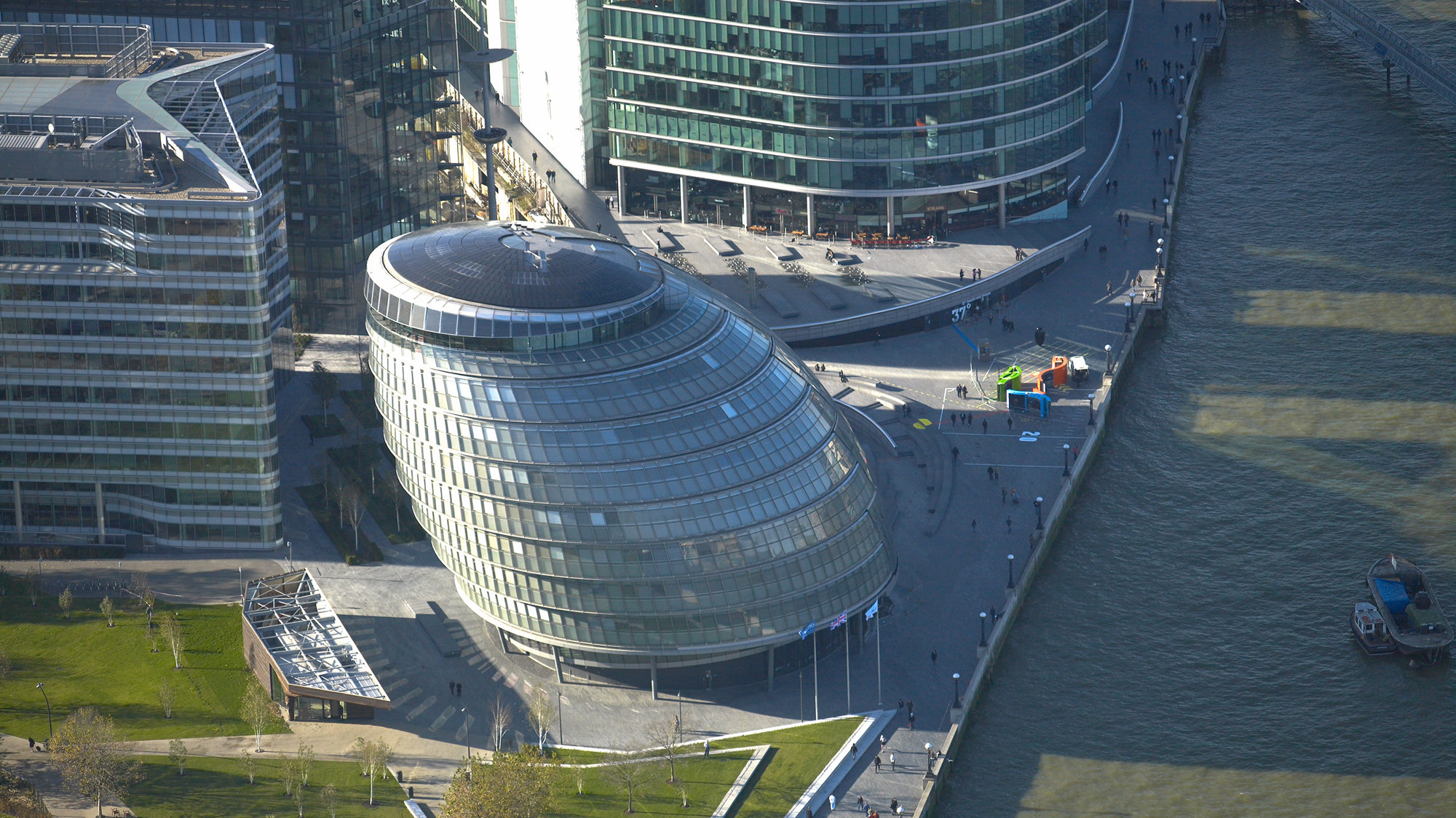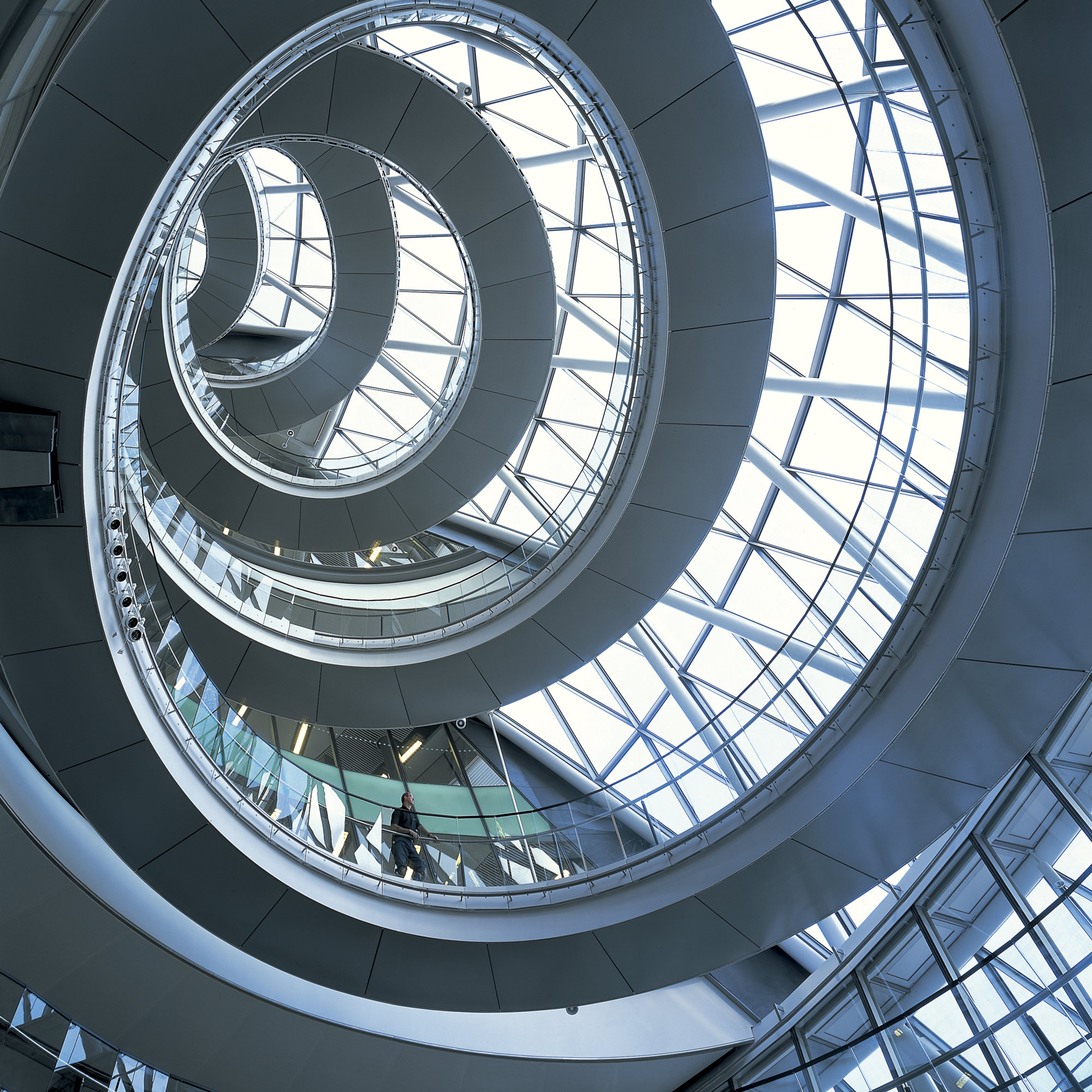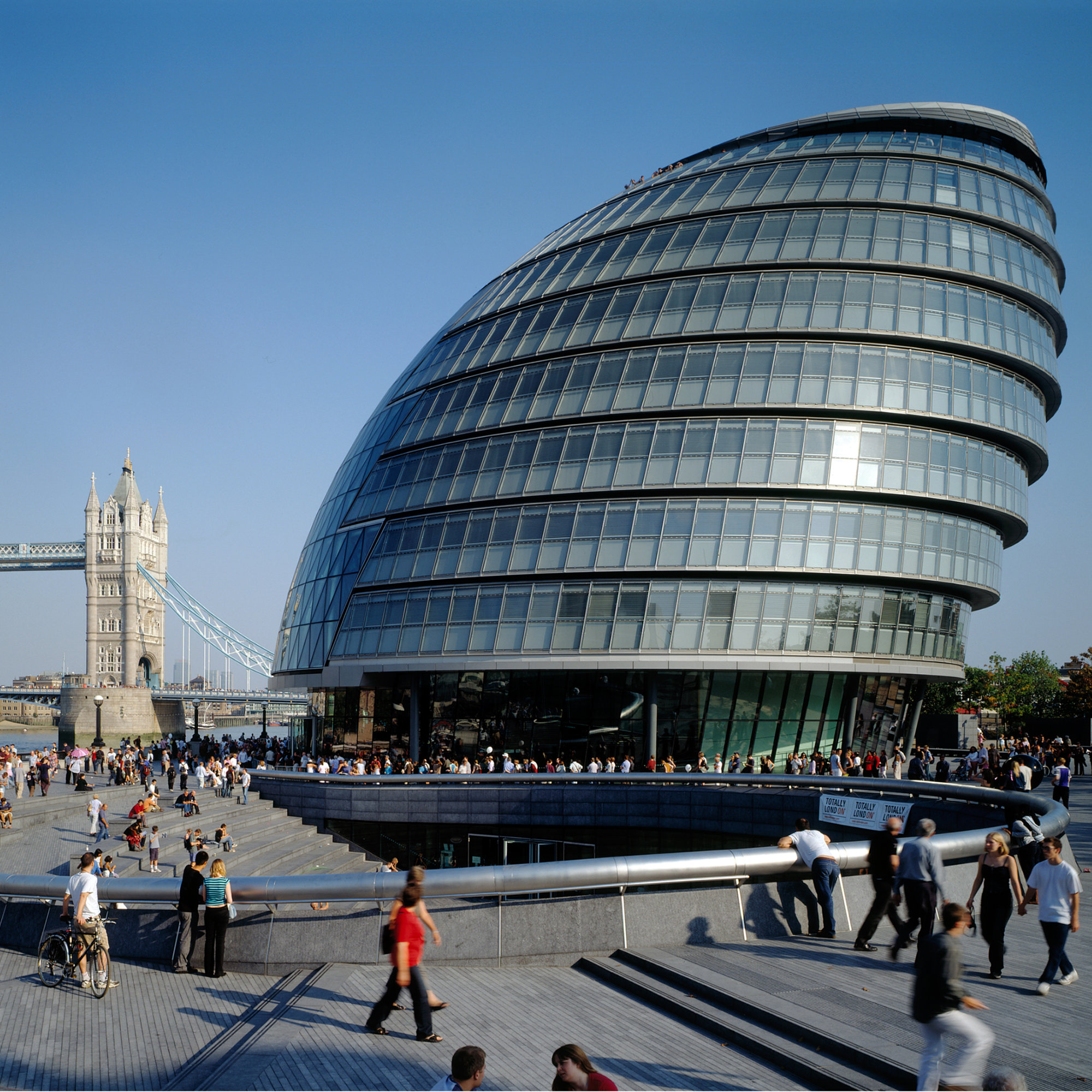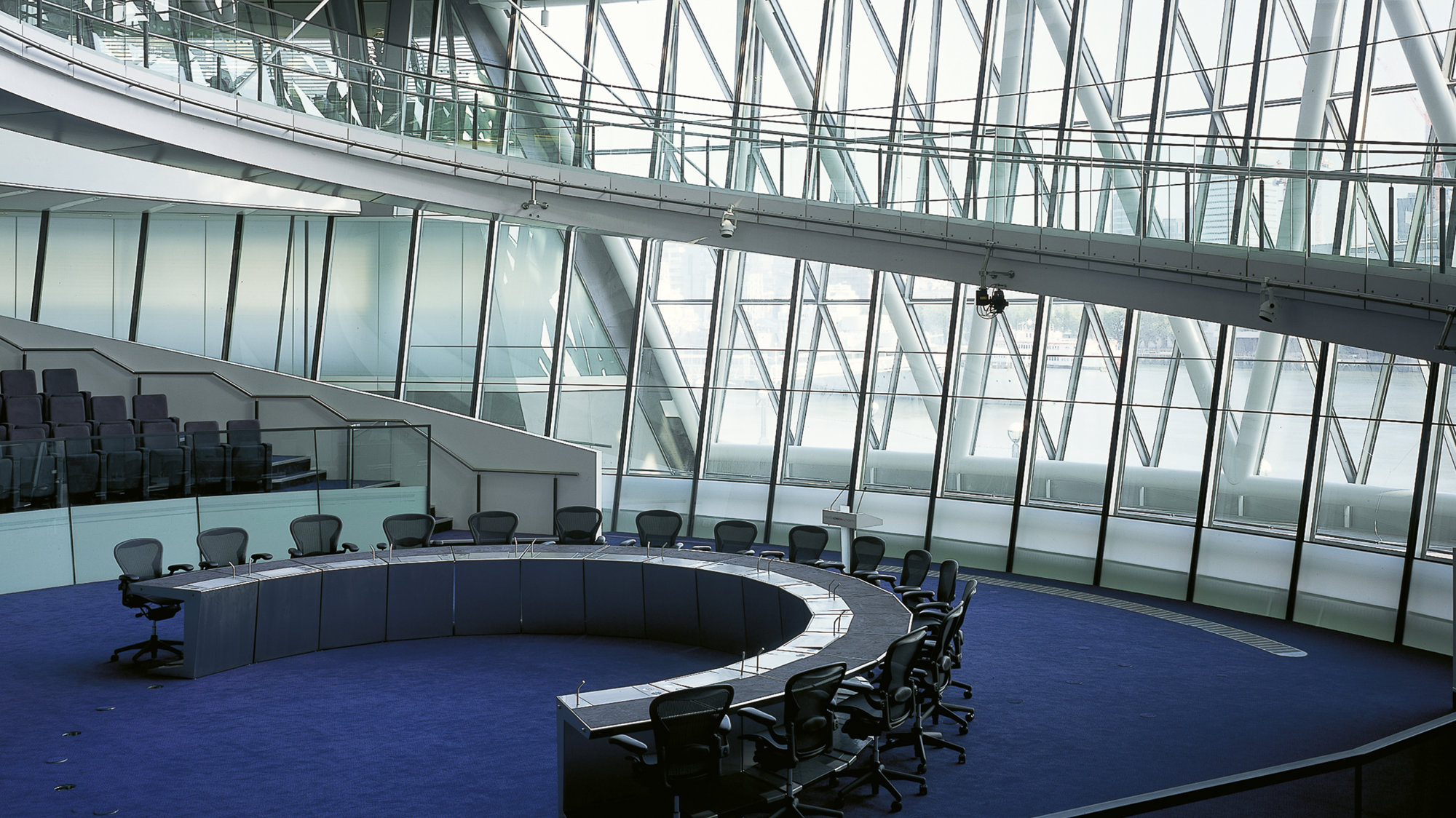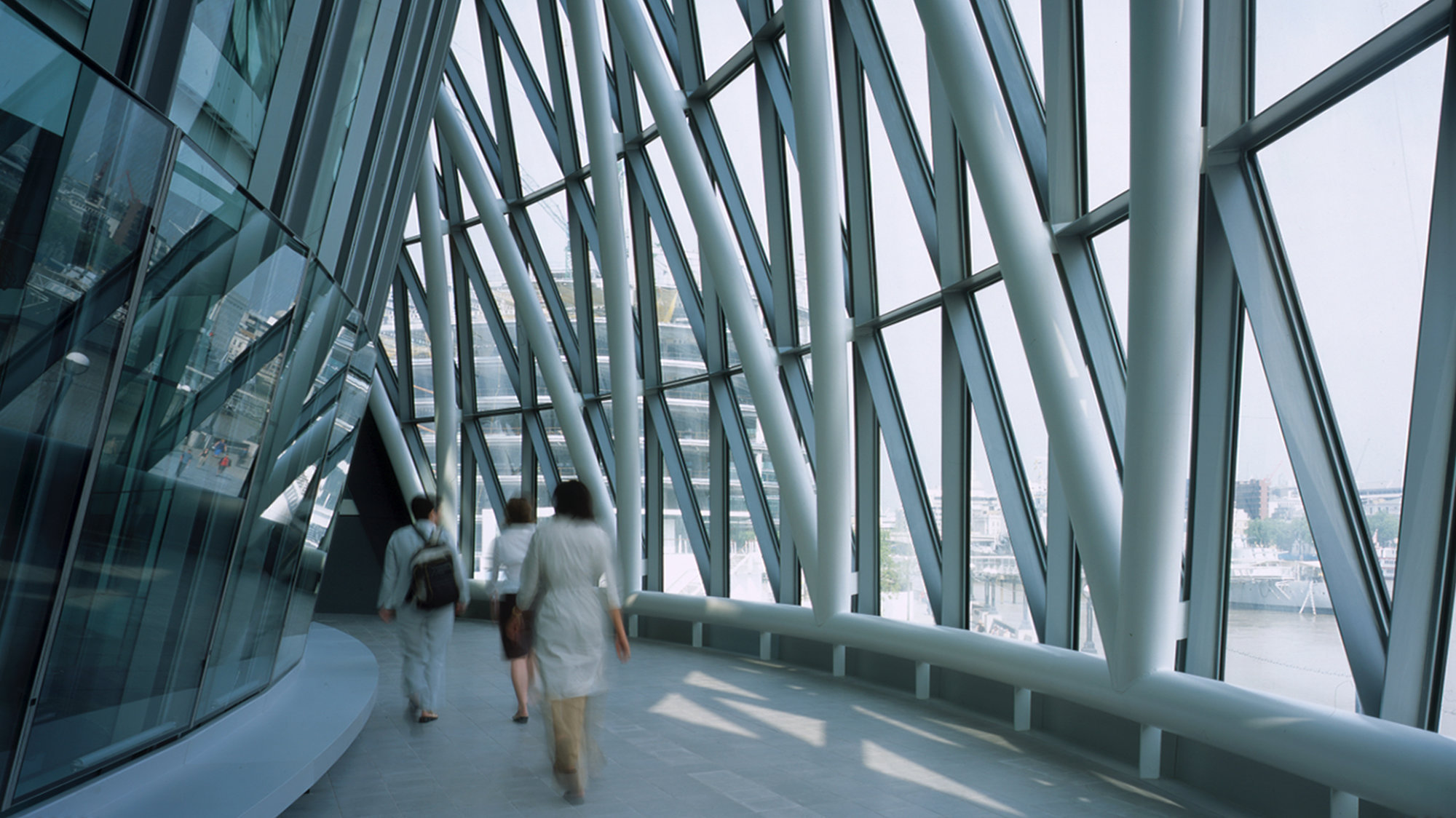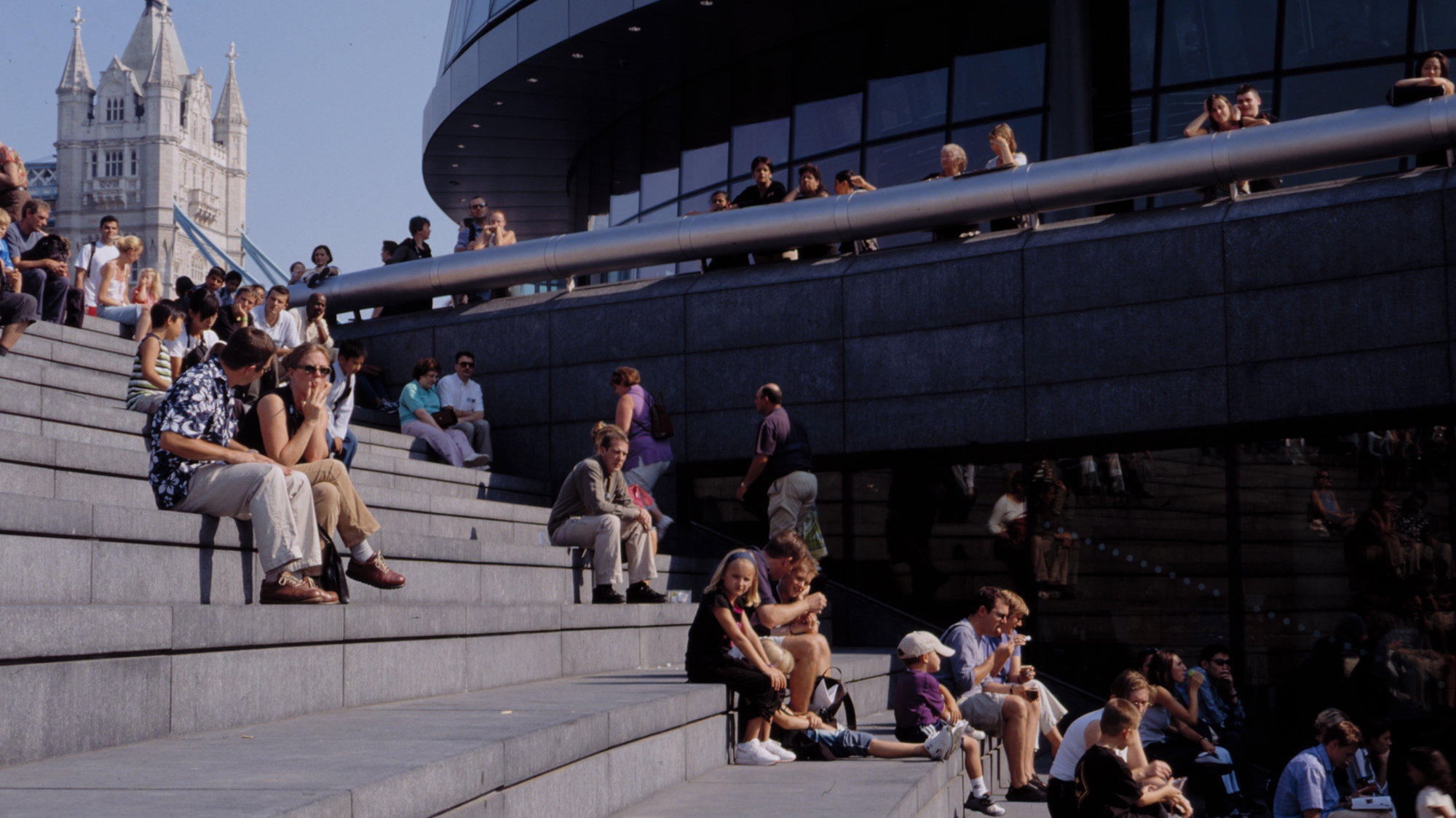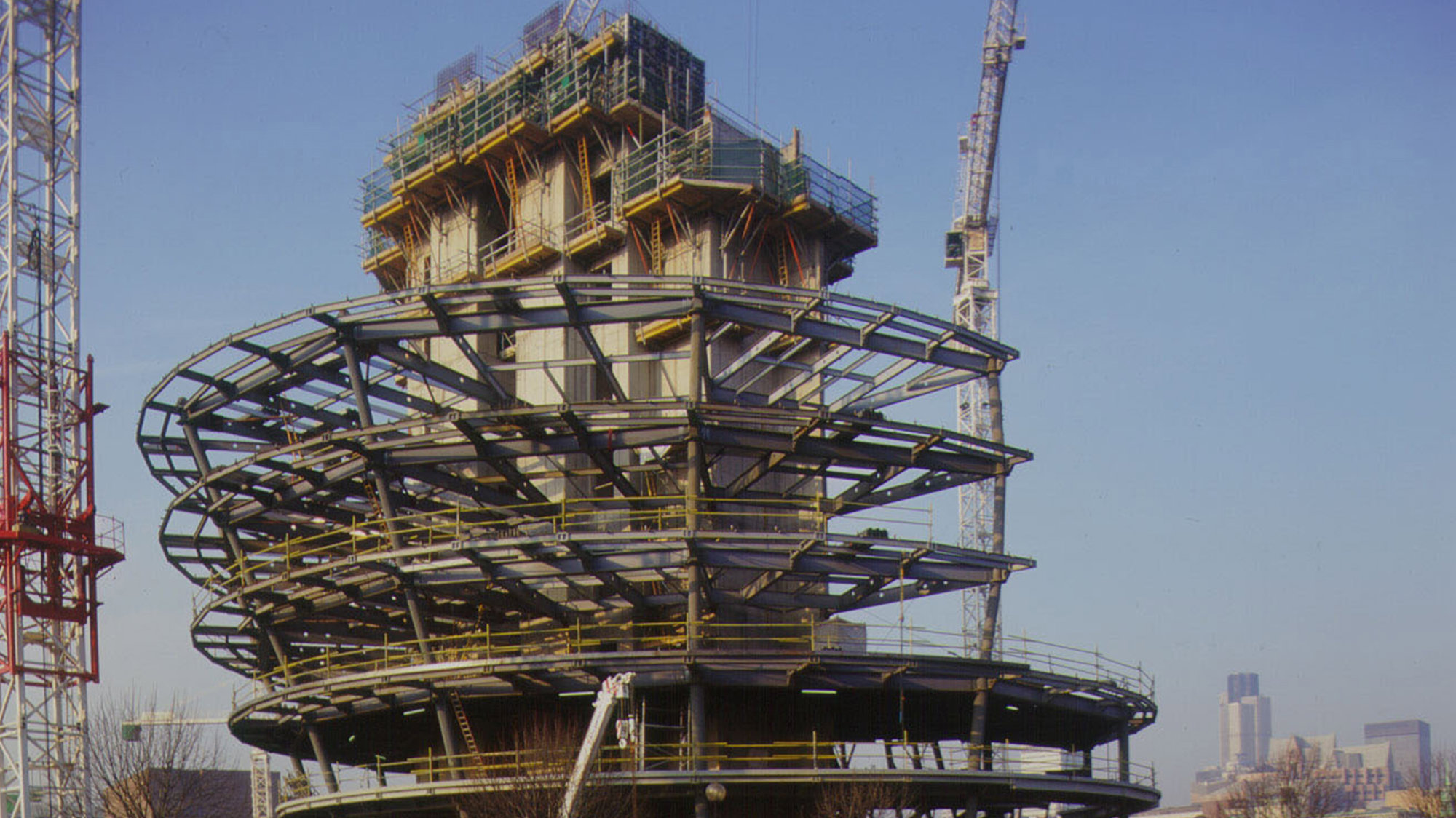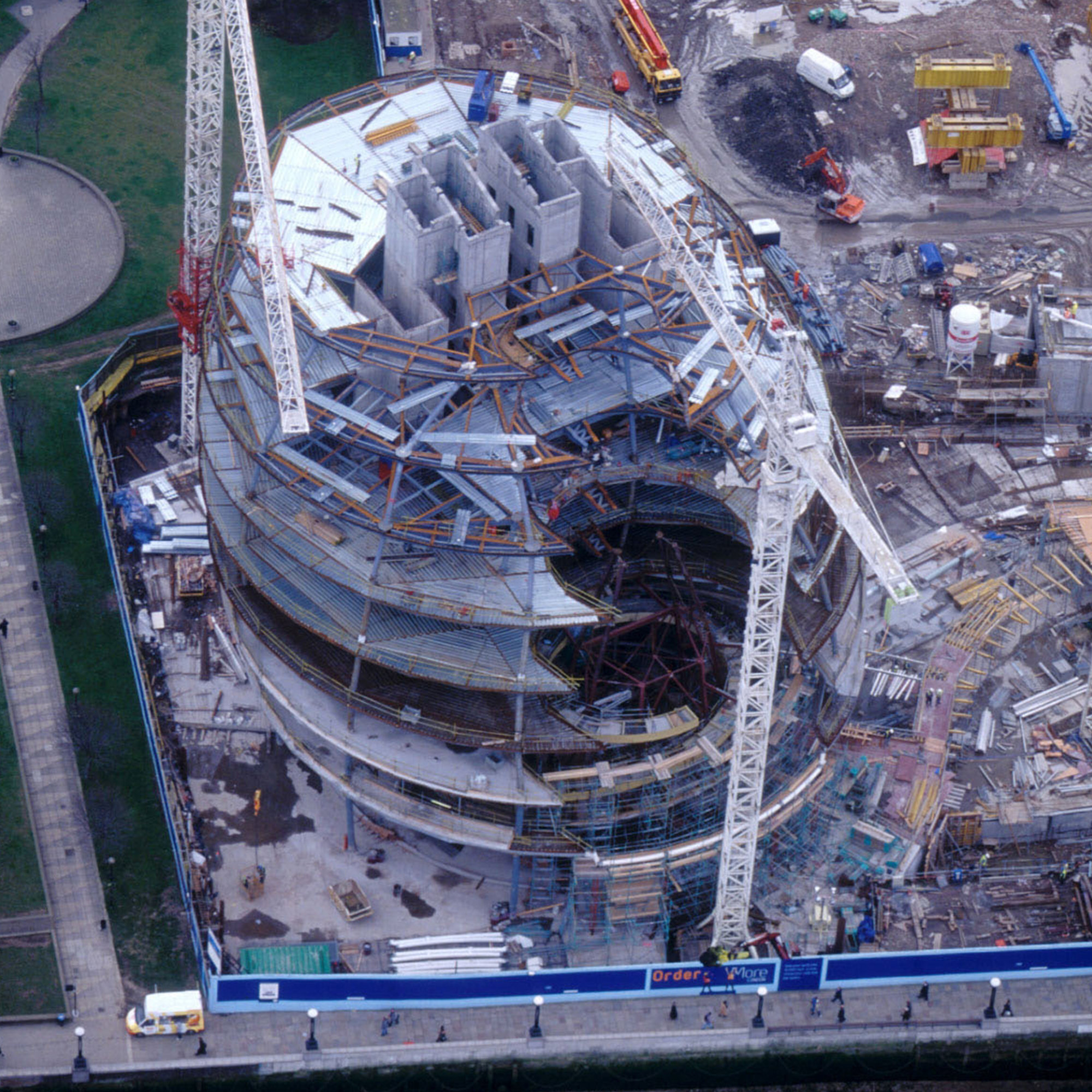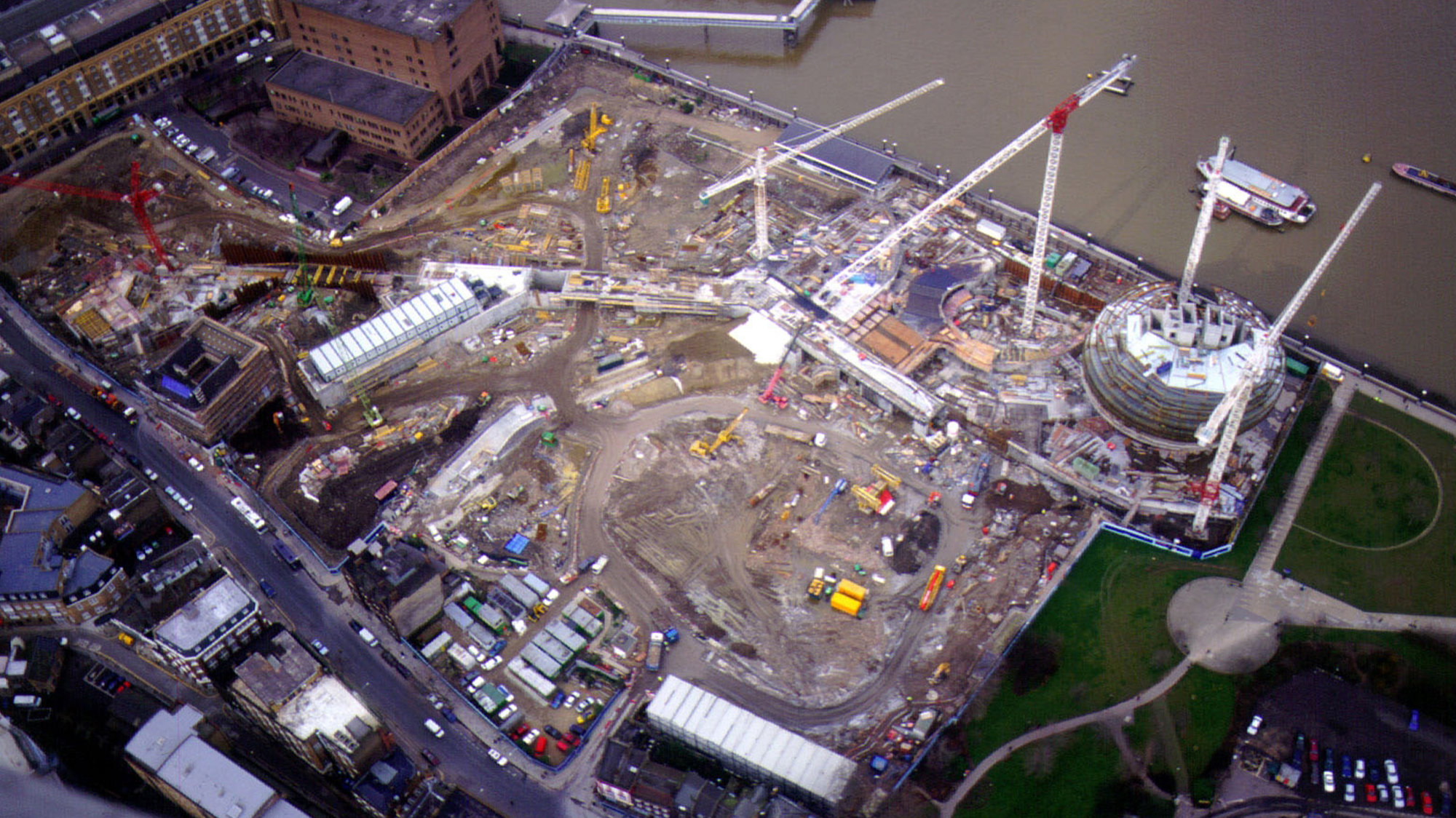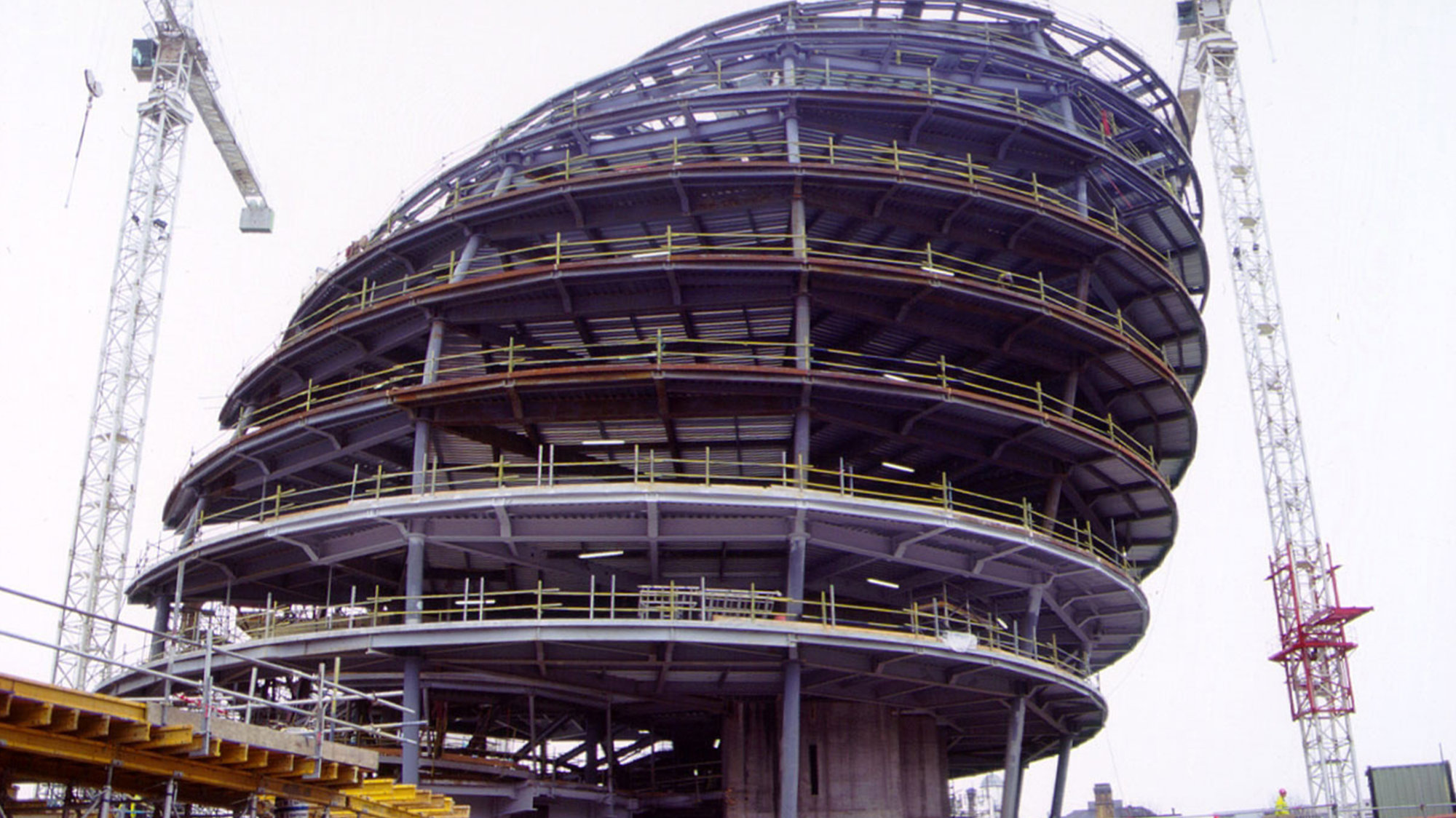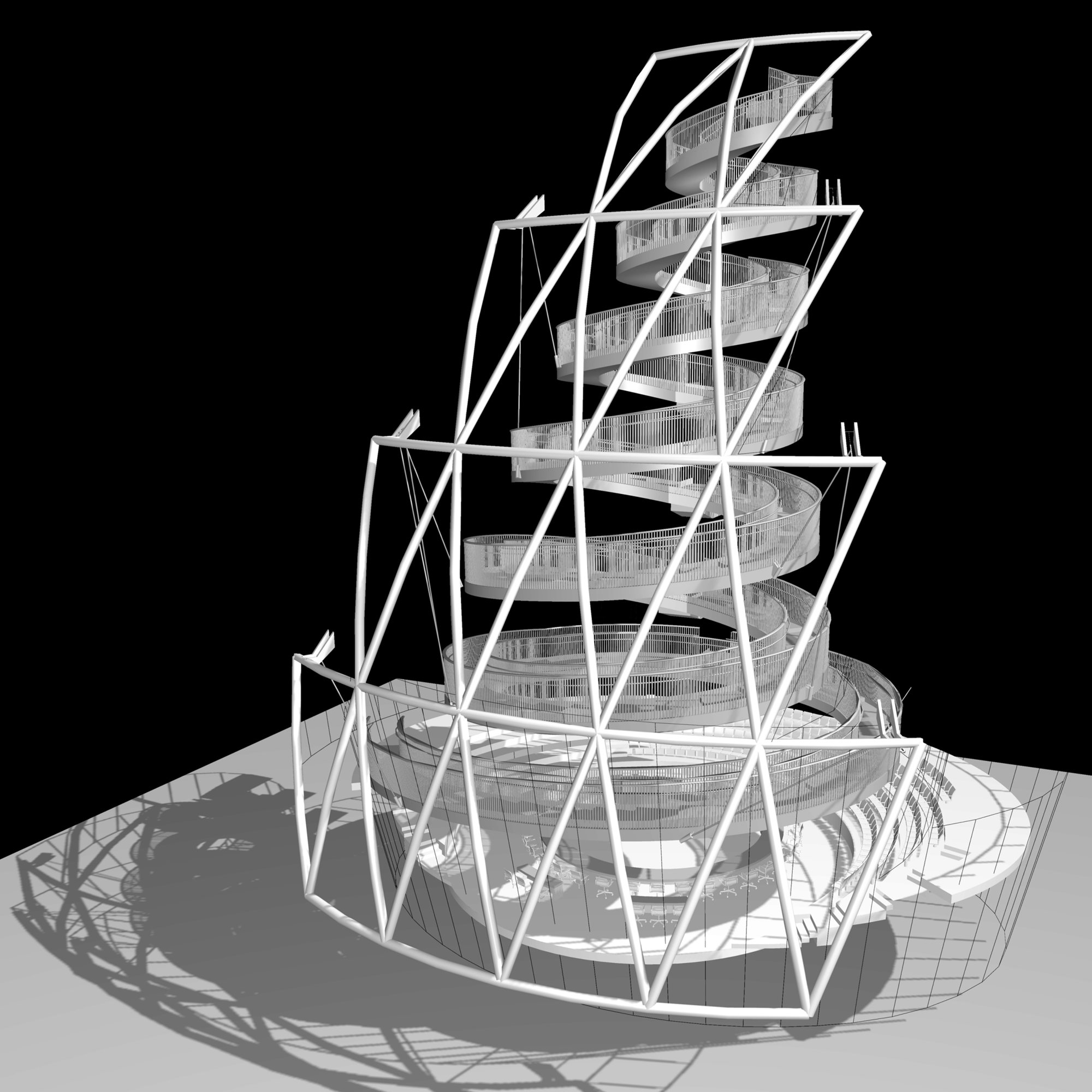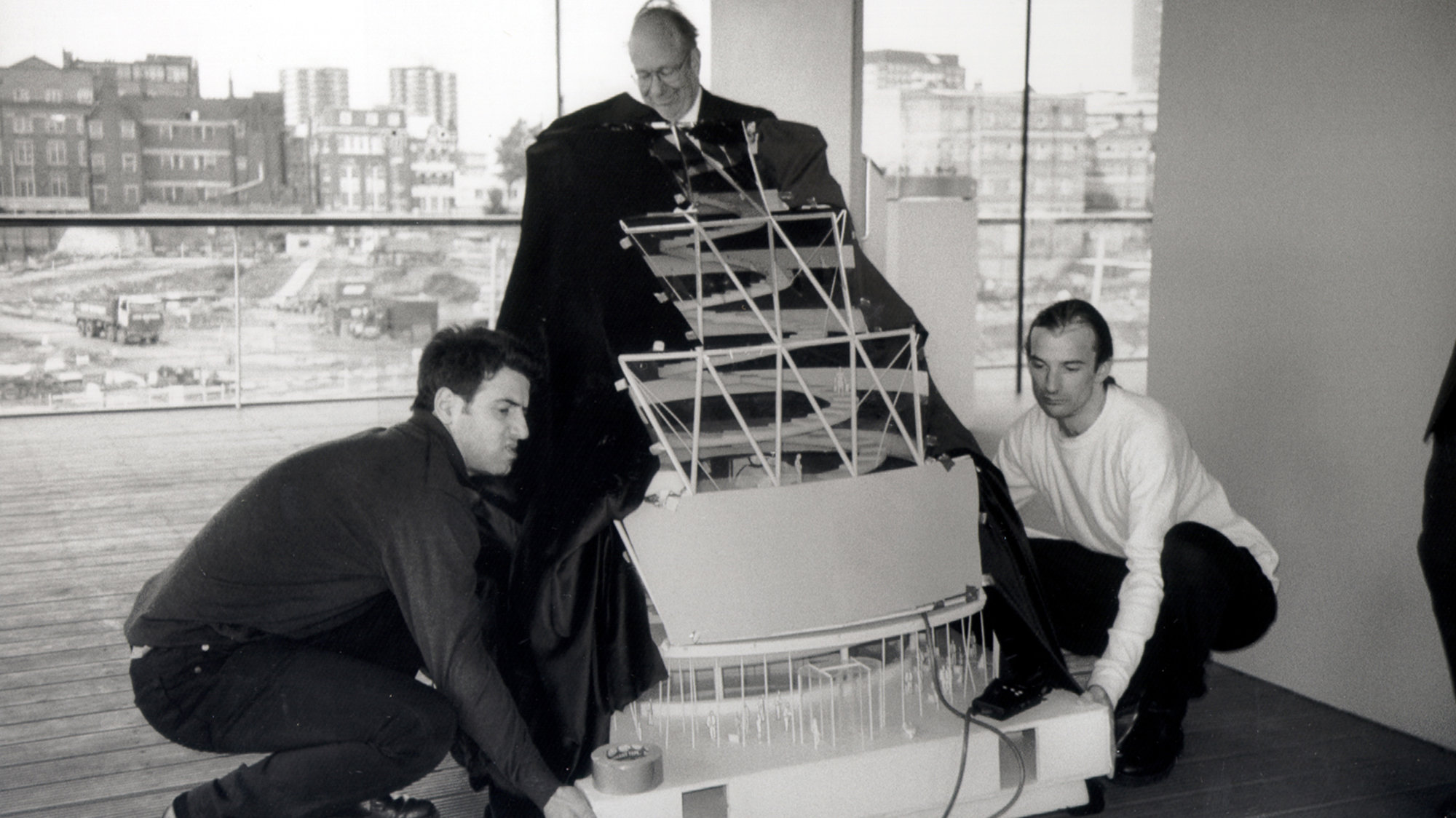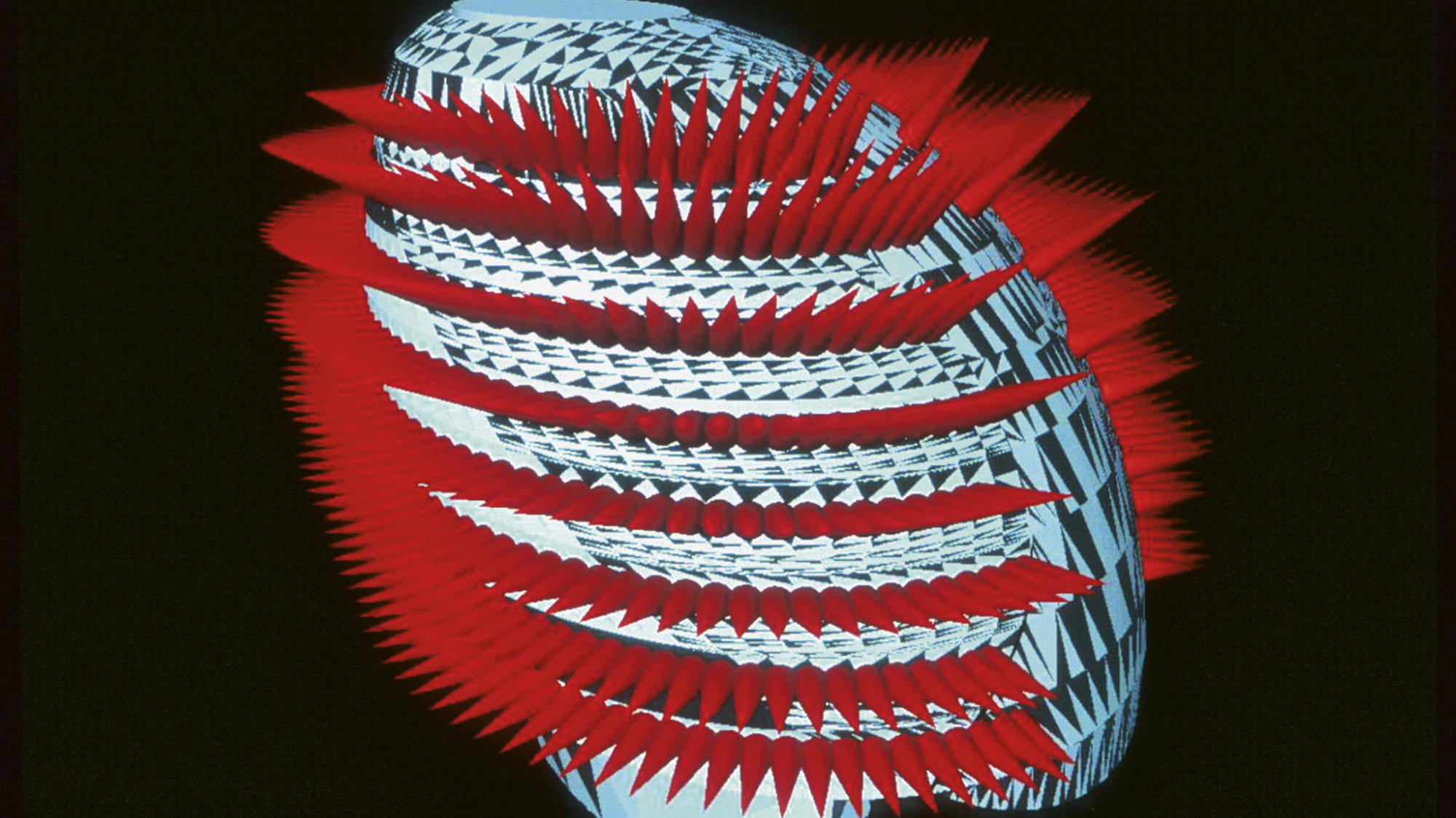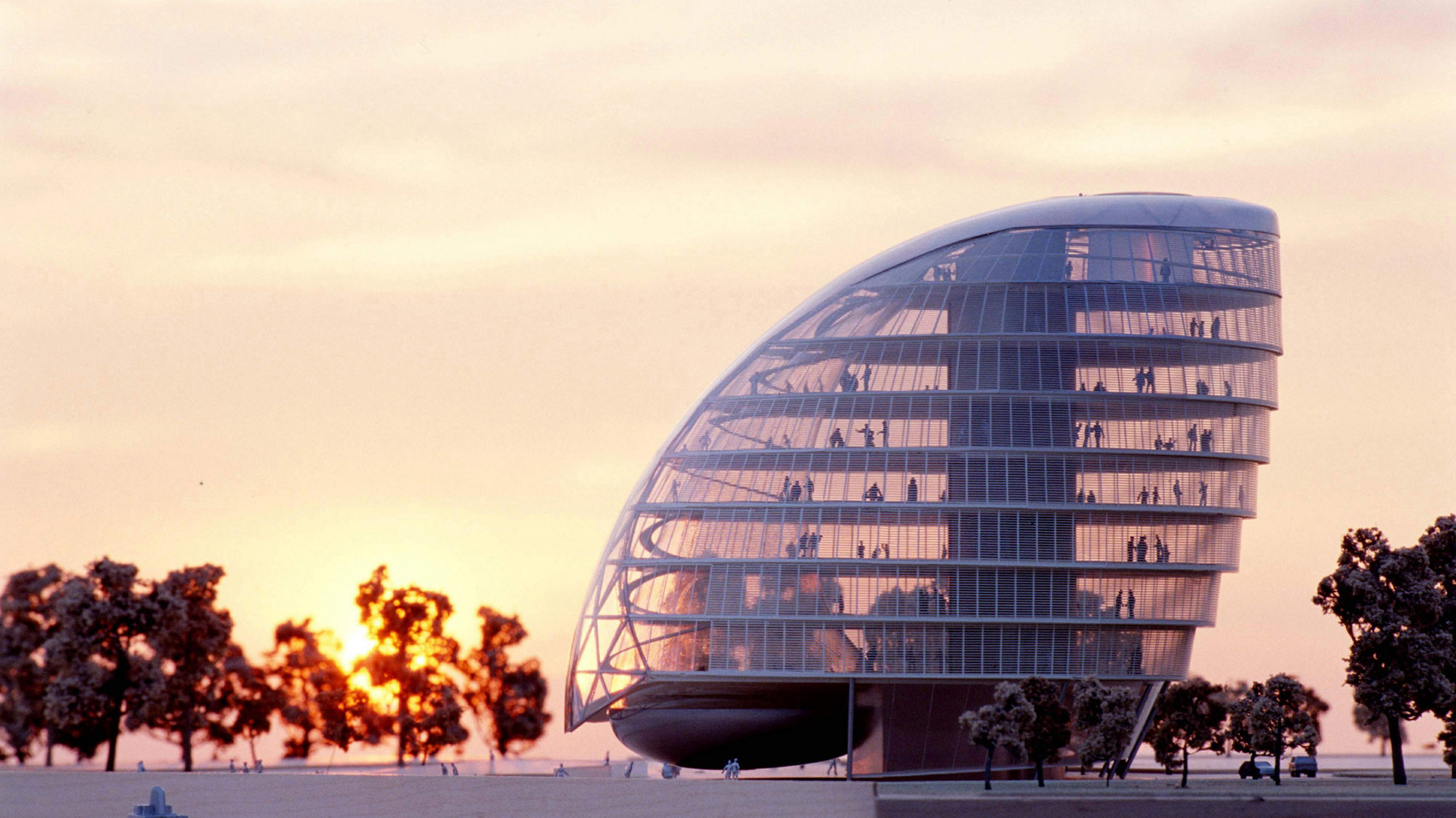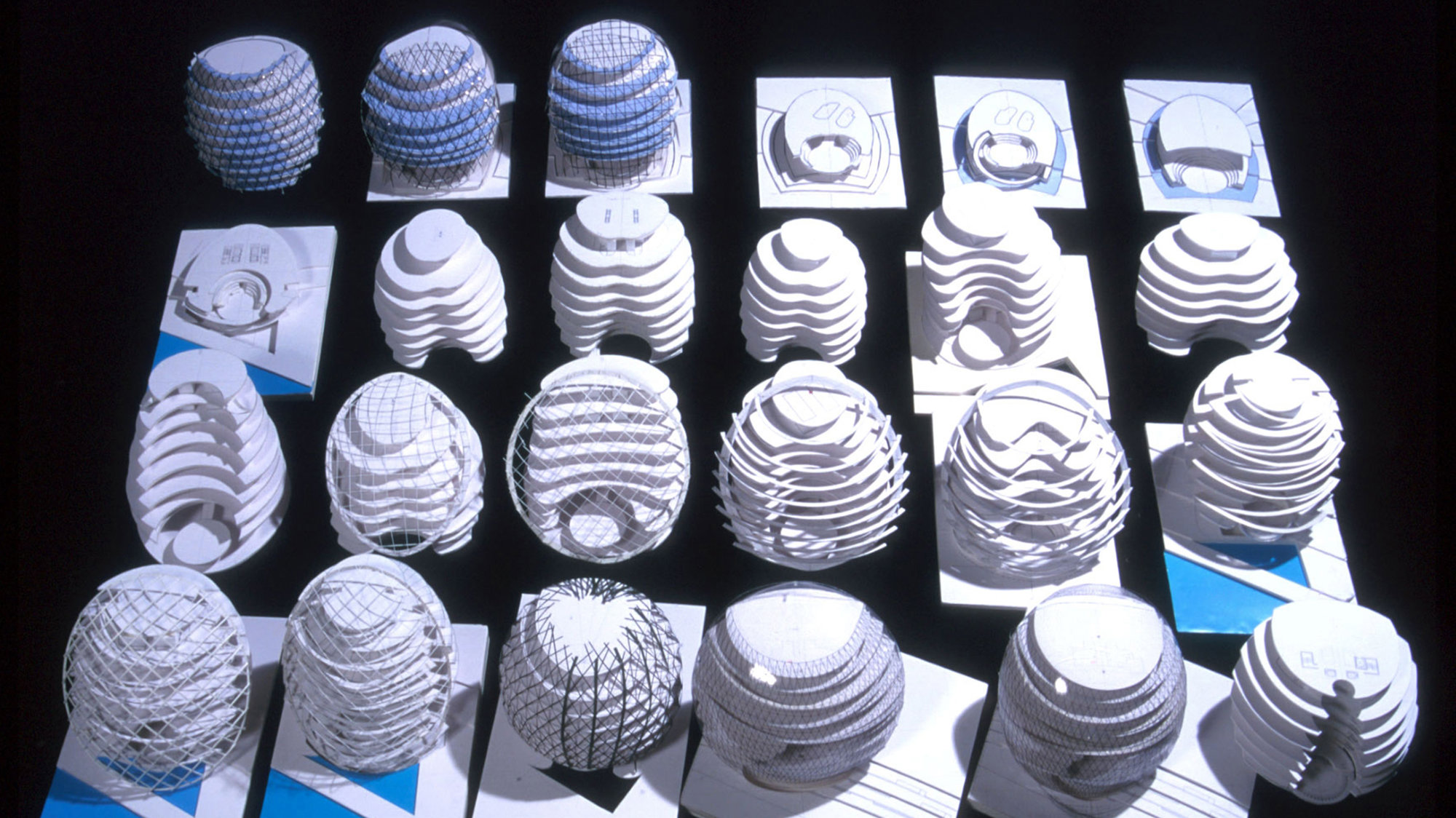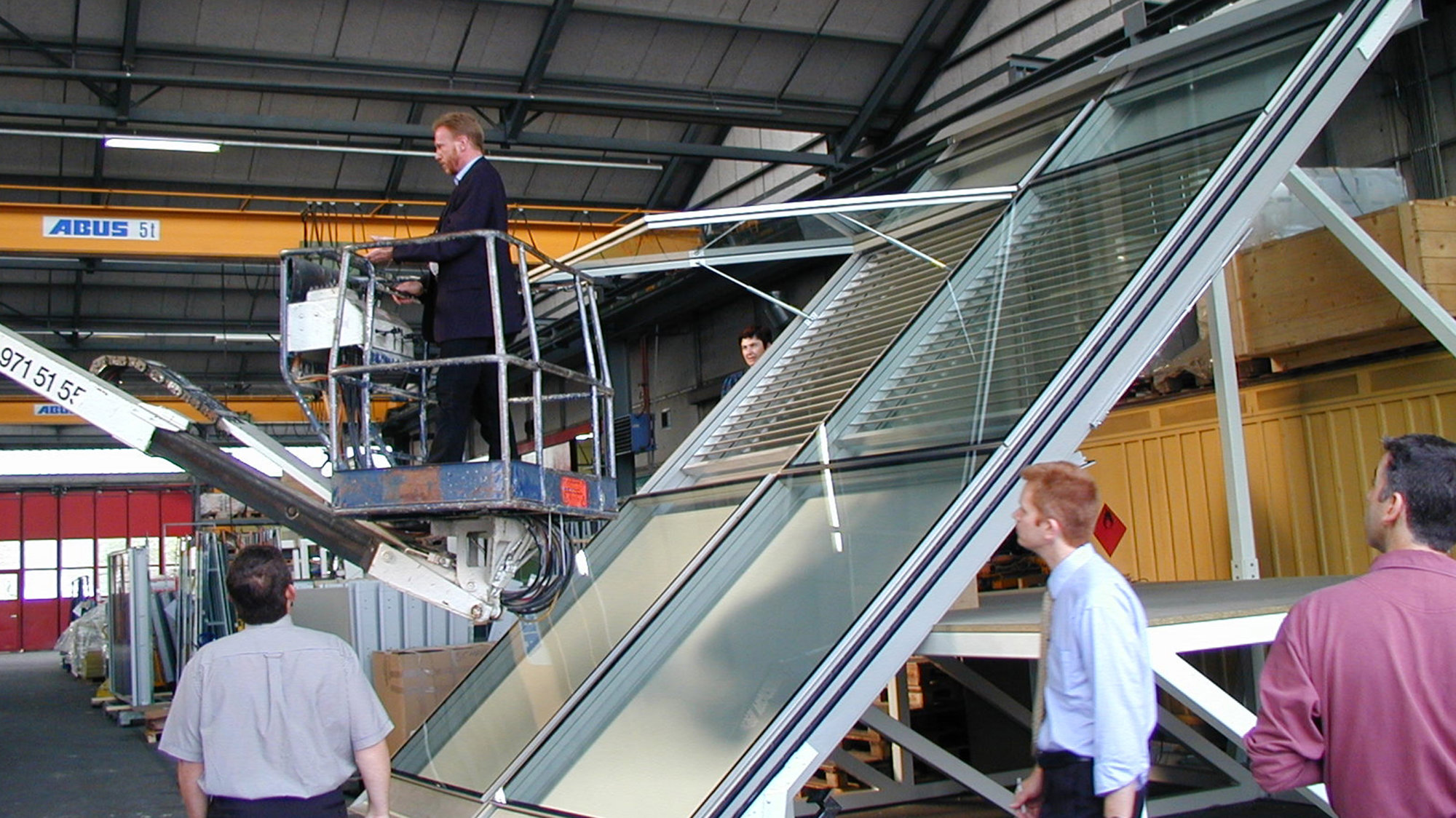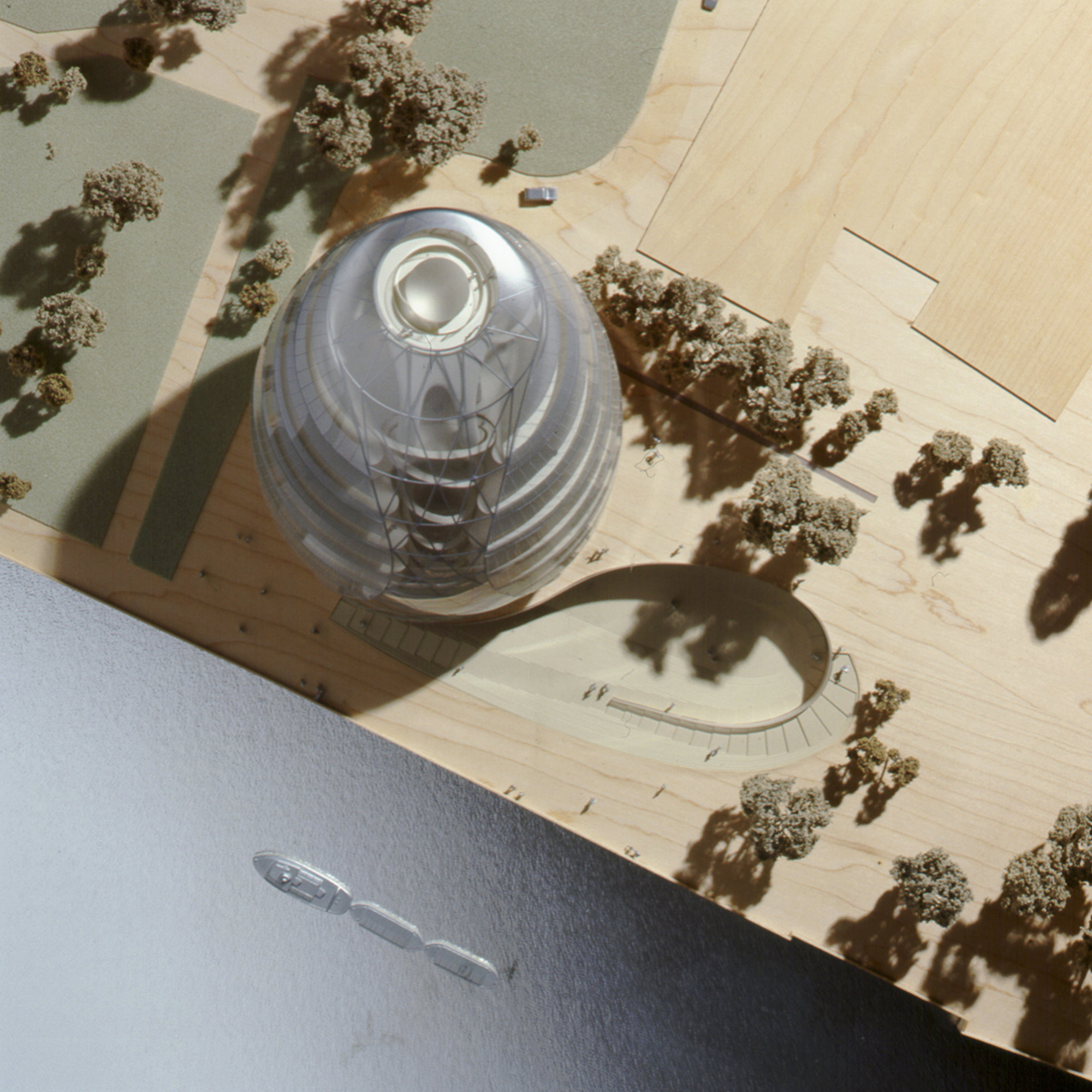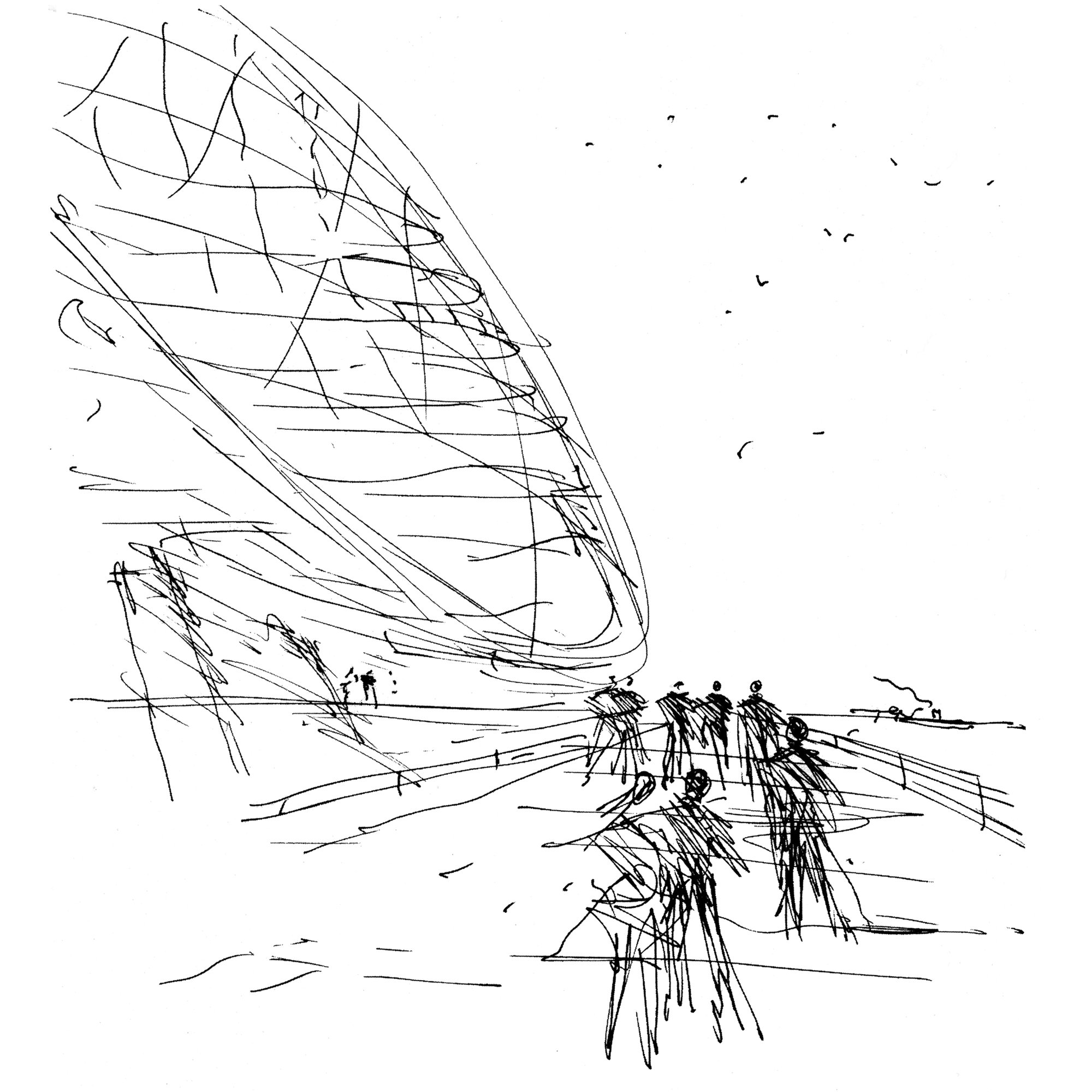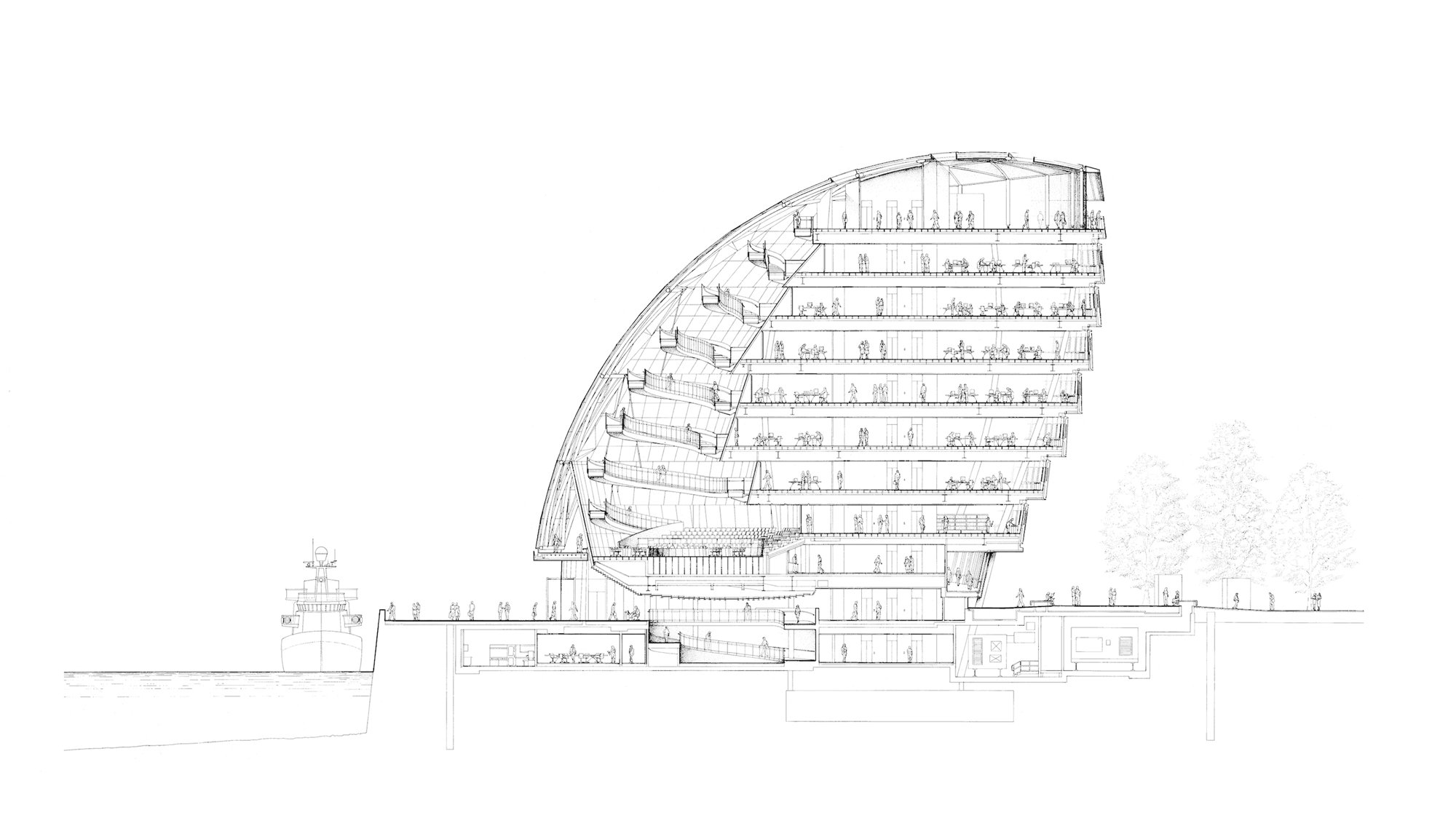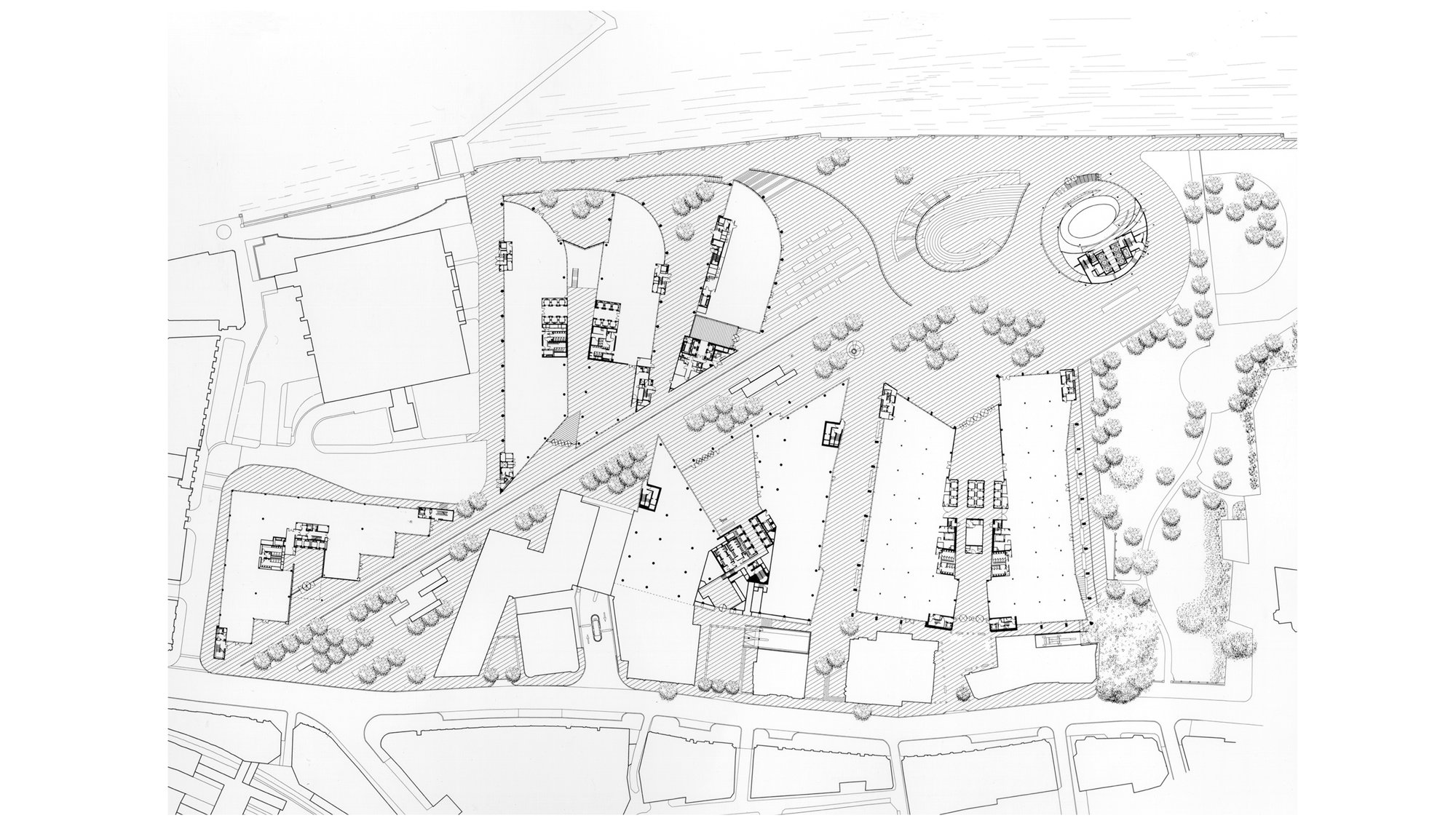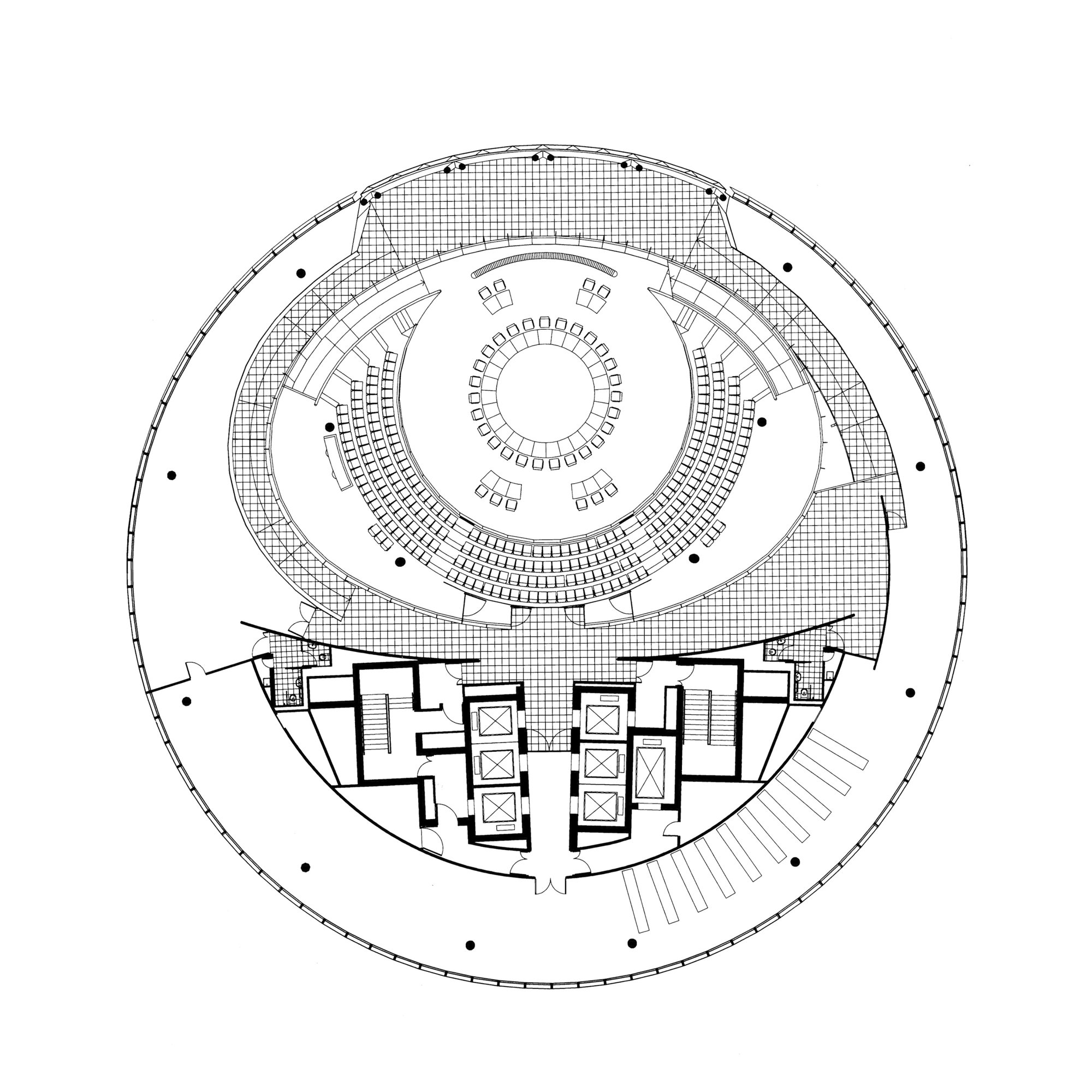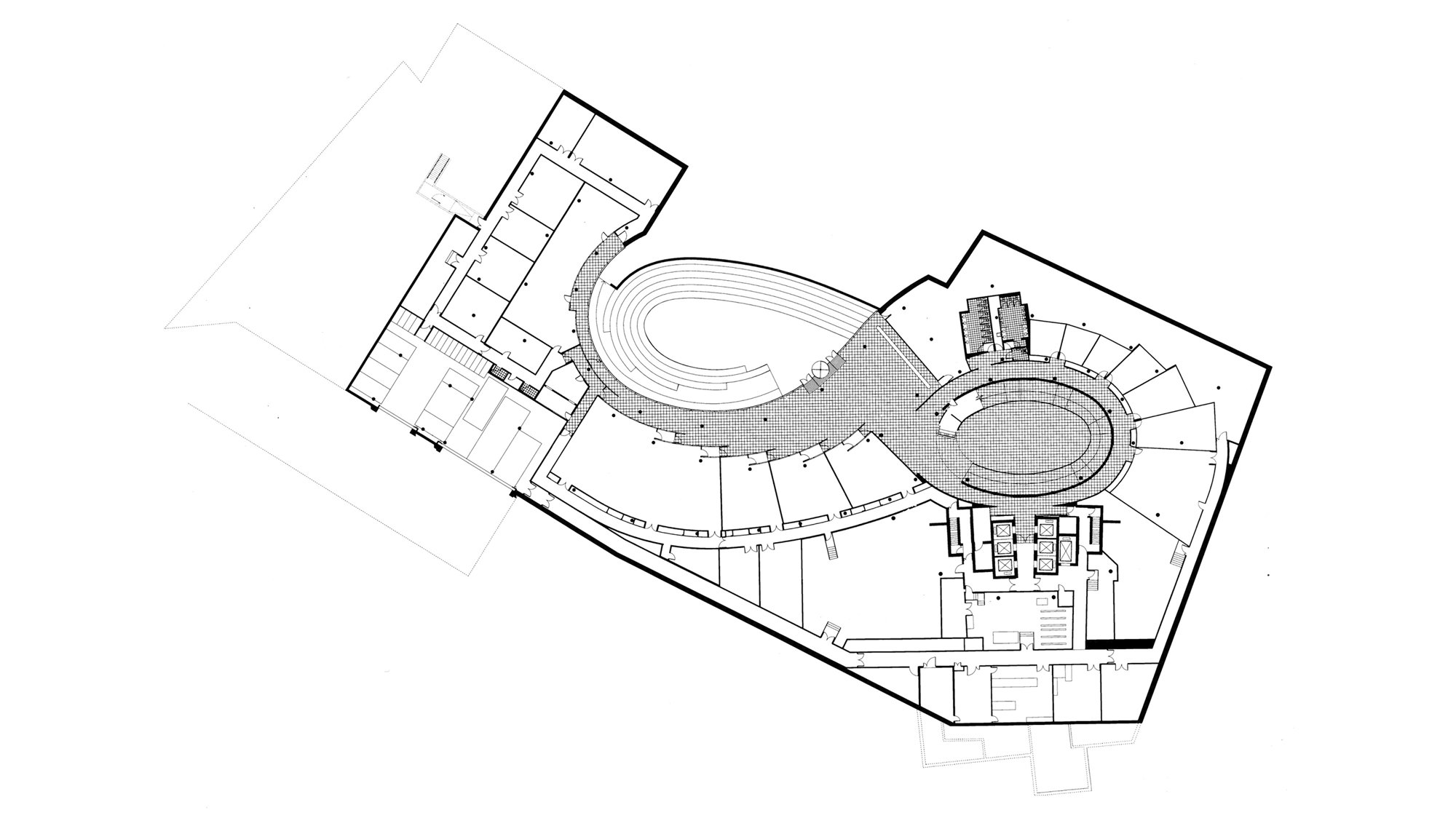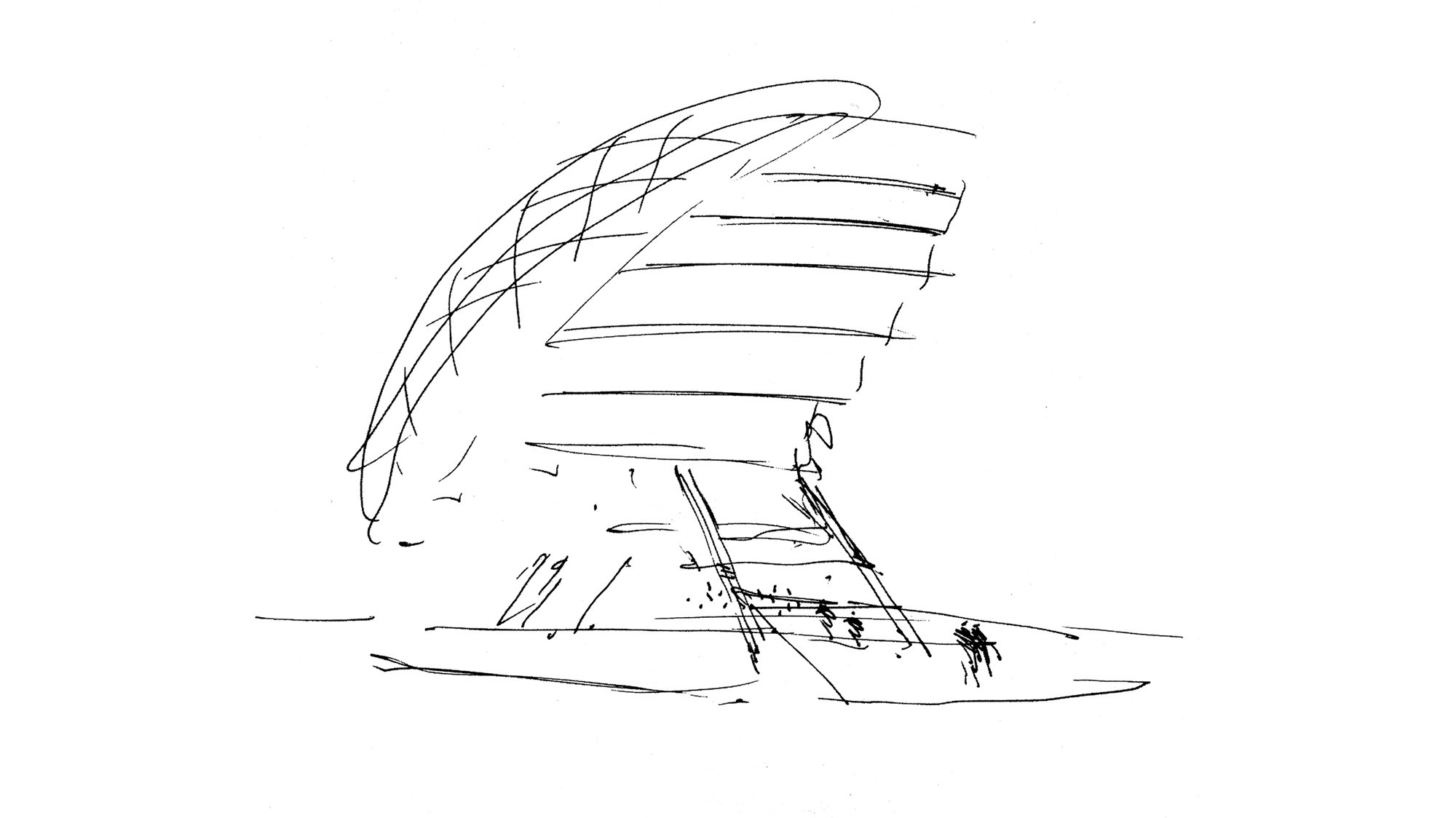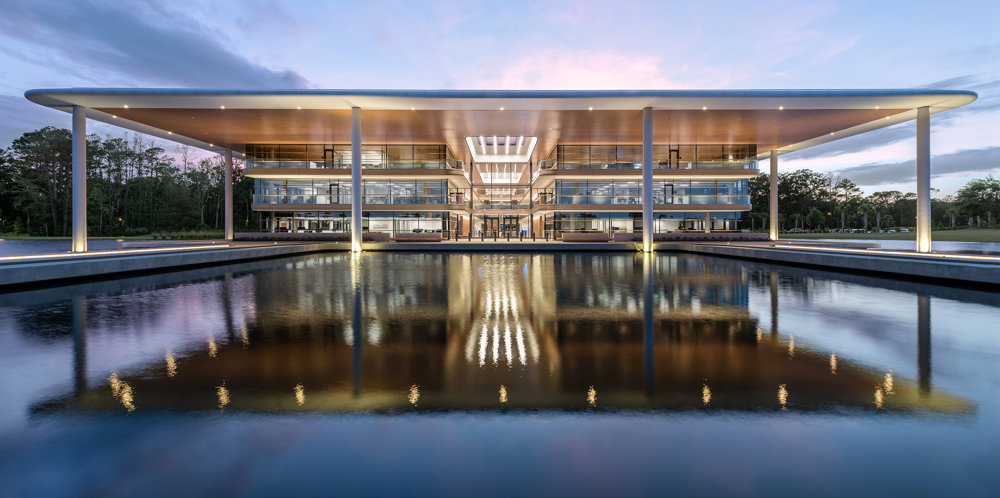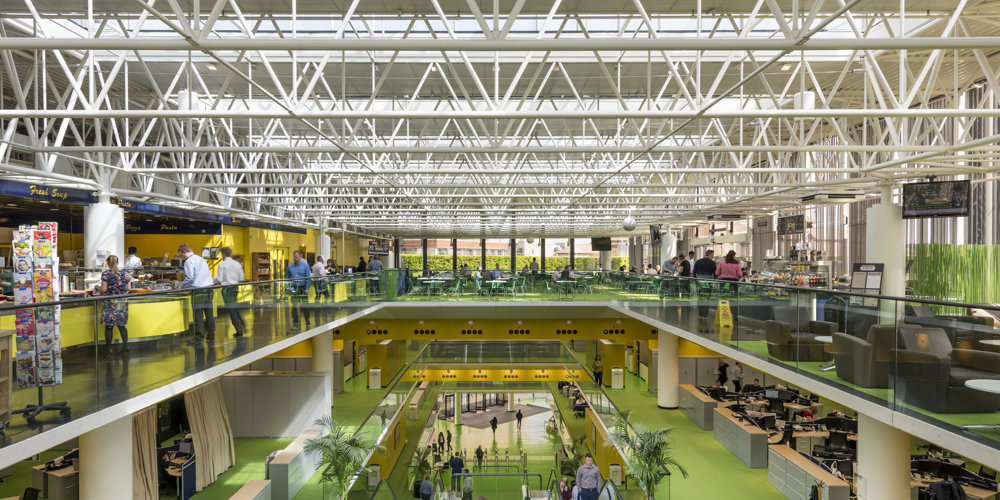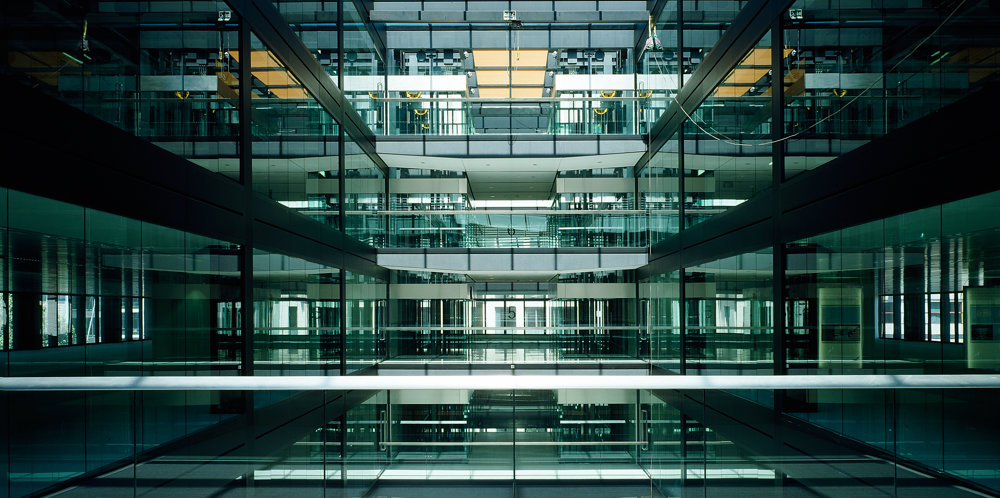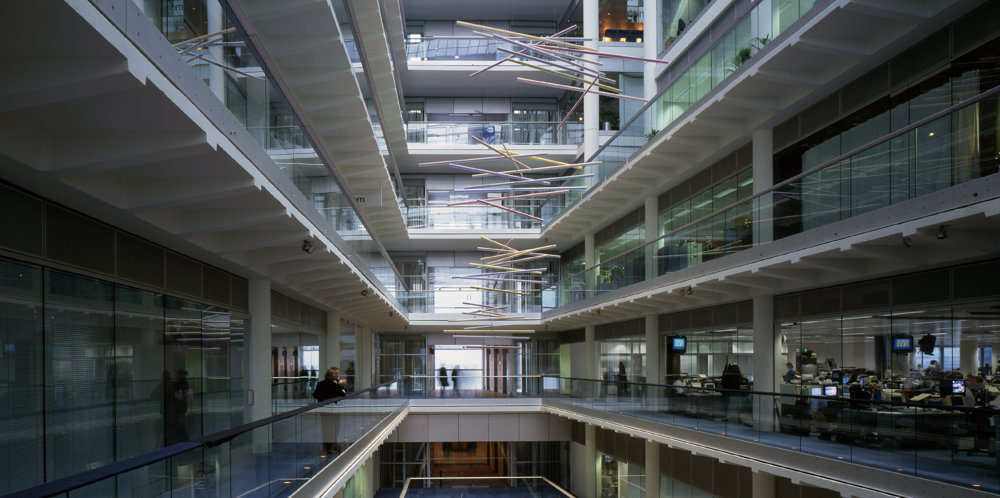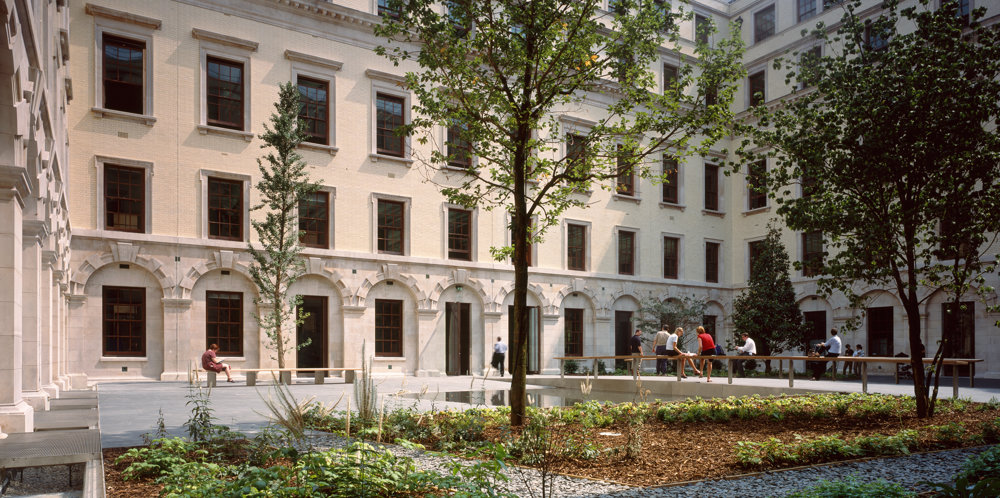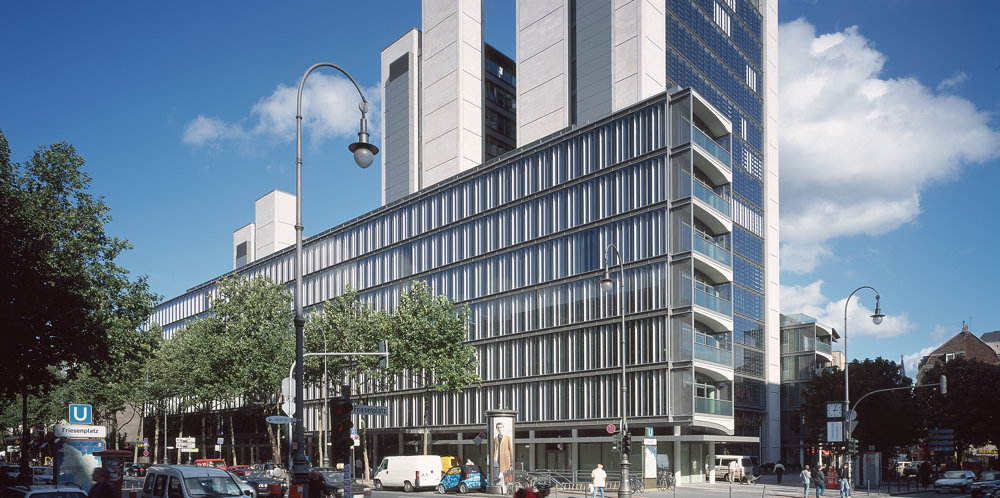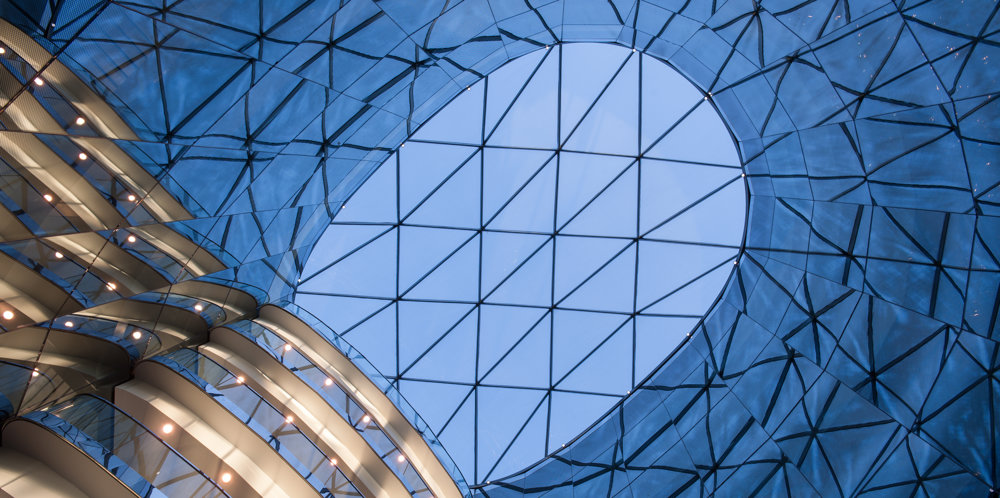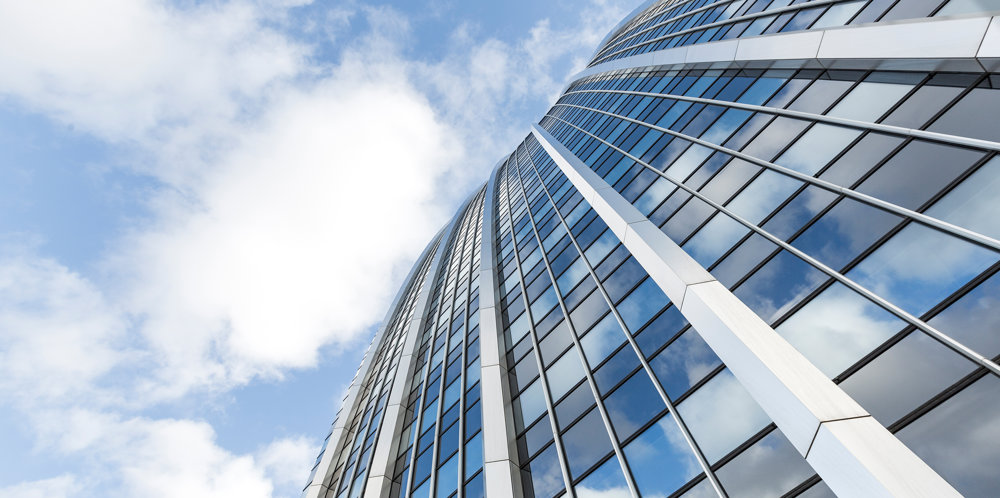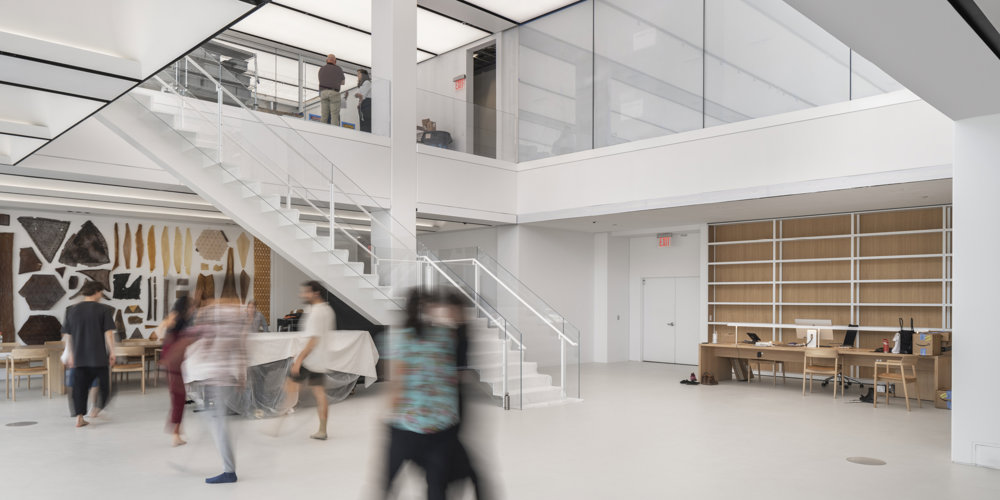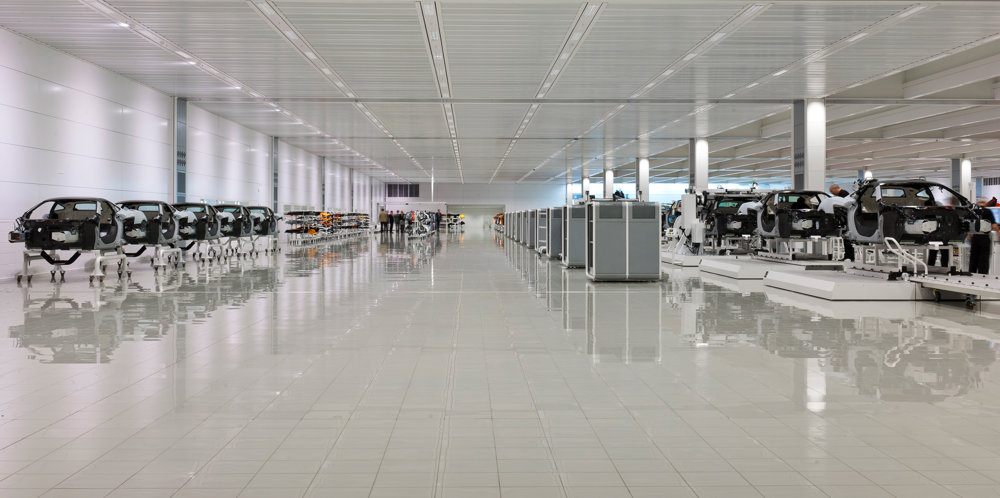View the 360 tour
City Hall is one of the capital’s most symbolically important projects, which expresses the transparency of the democratic process and demonstrates the potential for a wholly sustainable, virtually non-polluting public building. The headquarters occupies a prominent site on the Thames beside Tower Bridge. It houses an Assembly chamber, committee rooms and public facilities, together with offices for the Mayor, Assembly members, the Mayor’s cabinet and support staff, providing 12,000 square-metres of accommodation on ten levels.
The Assembly chamber faces north across the river to the Tower of London, its glass enclosure allowing Londoners to watch the Assembly at work. Members of the public are also invited to share the building: a flexible space on the top floor – ‘London’s Living Room’ - can be used for exhibitions or functions, and the public commands the rooftop, where a terrace offers unparalleled views across London. At the base is a piazza with a café, from which the riverside can be enjoyed. Lifts and gentle ramps allow universal access throughout the building.
The building has been designed so that it has no front or back in conventional terms. Its shape is derived from a geometrically modified sphere, developed using computer modelling techniques.
This form achieves optimum energy performance by minimising the surface area exposed to direct sunlight. Analysis of sunlight patterns throughout the year produced a thermal map of the building’s surface, which is expressed in its cladding. A range of active and passive shading devices is employed: to the south the building leans back so that its floor-plates step inwards to provide shading for the naturally ventilated offices; and the building’s cooling systems utilise ground water pumped up via boreholes from the water table. These energy-saving techniques mean that chillers will not be needed and that for most of the year the building will require no additional heating. Overall, it will use only a quarter of the energy consumed by a typical air-conditioned office building.
